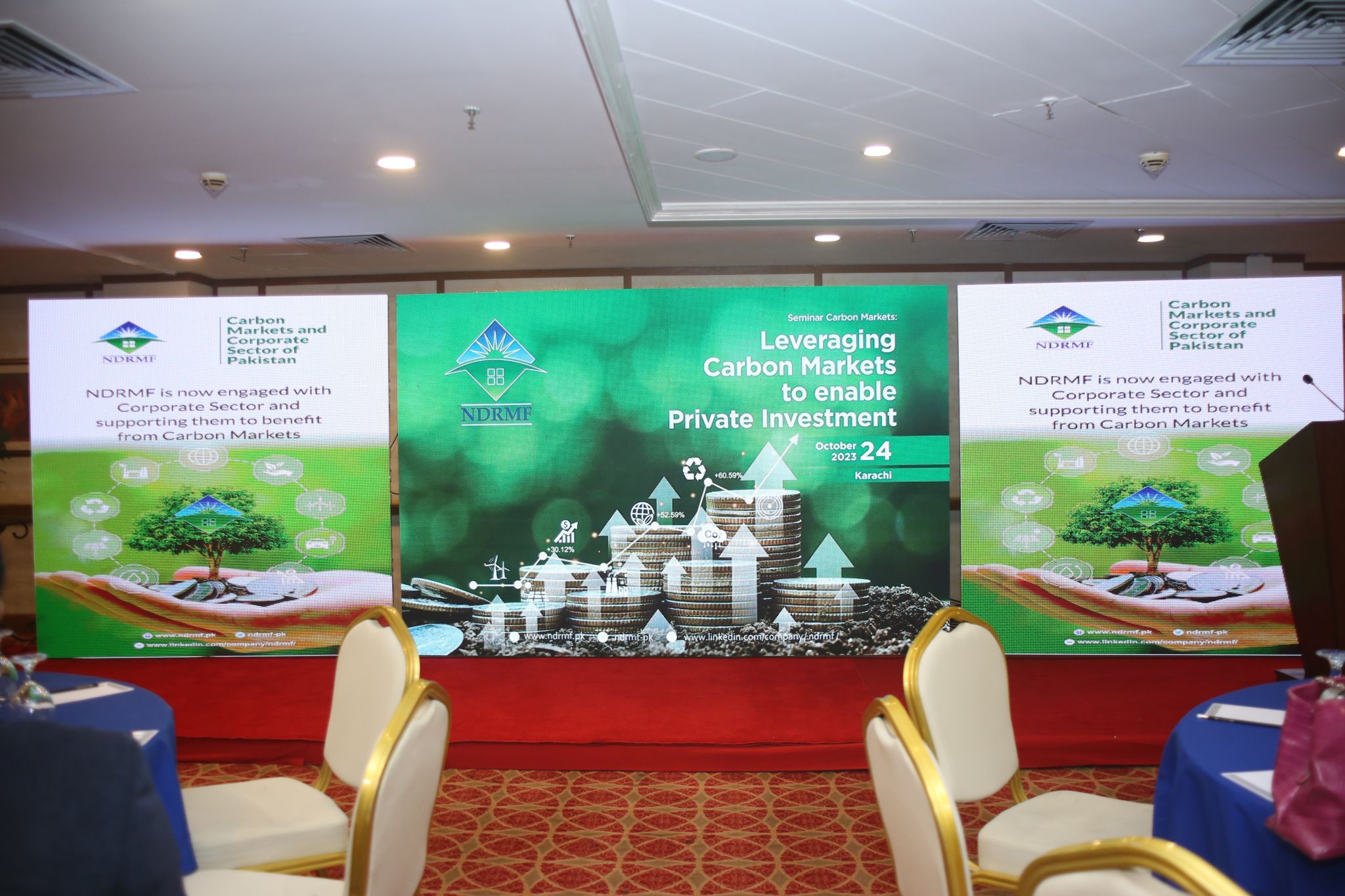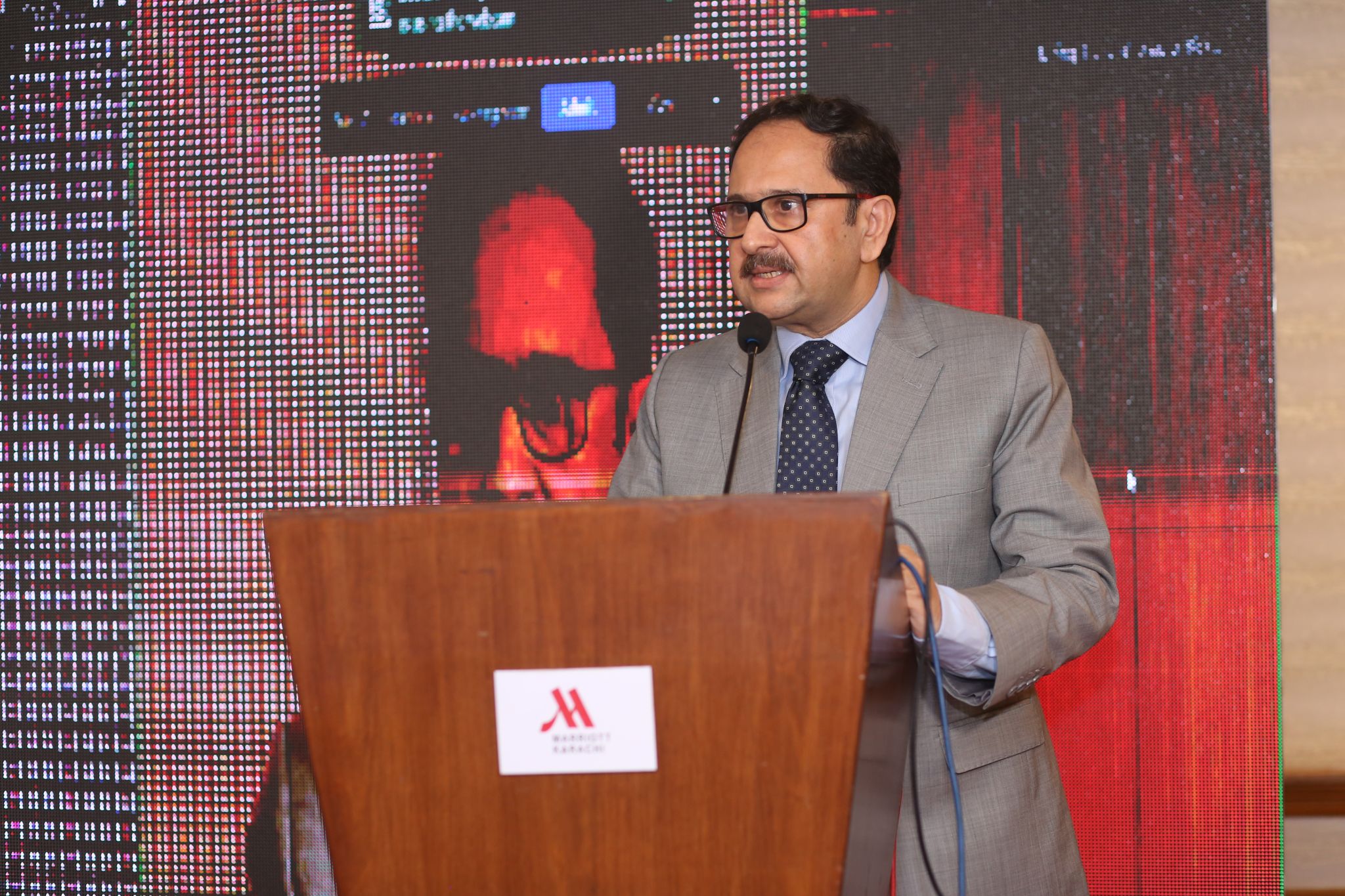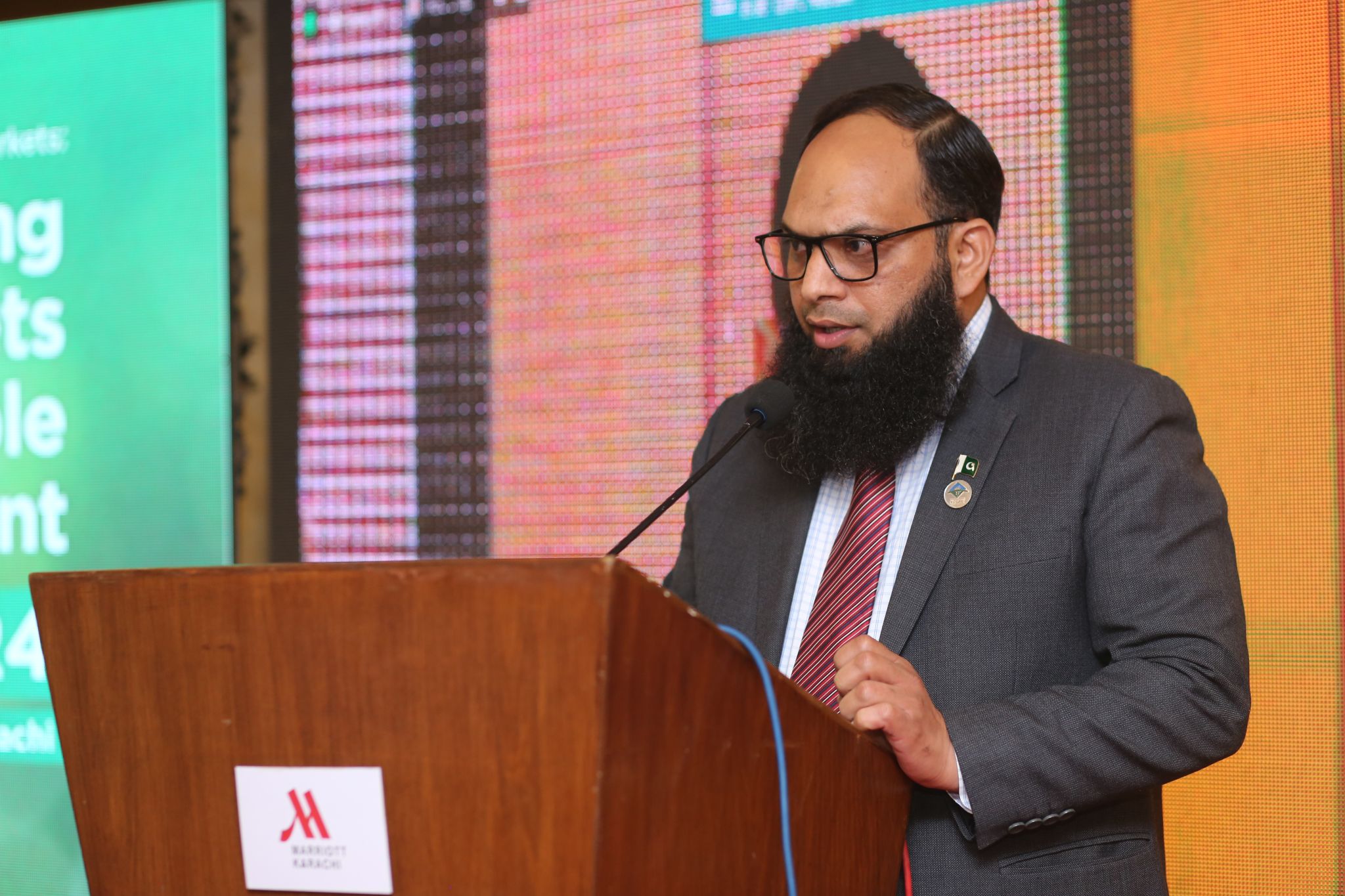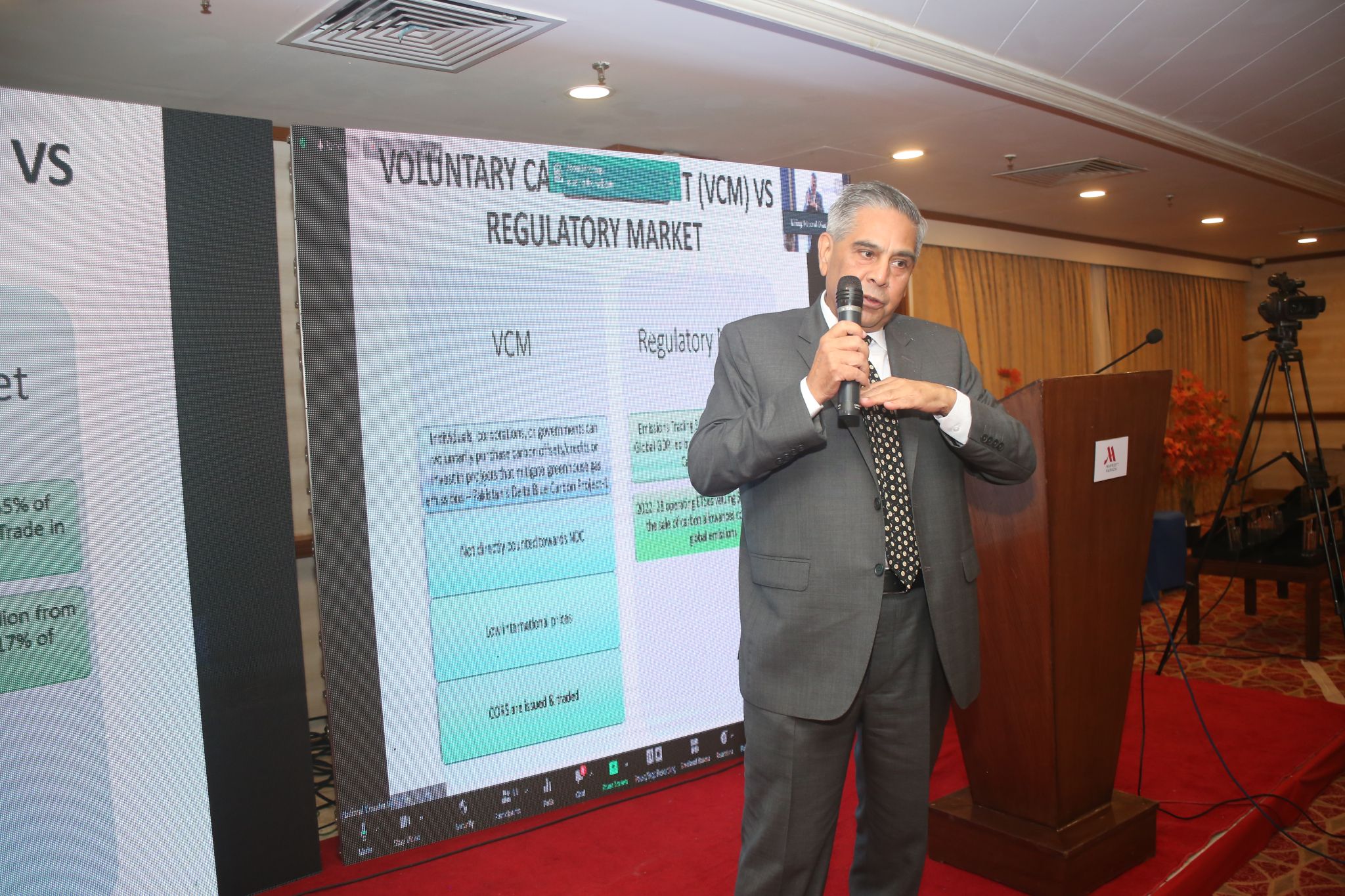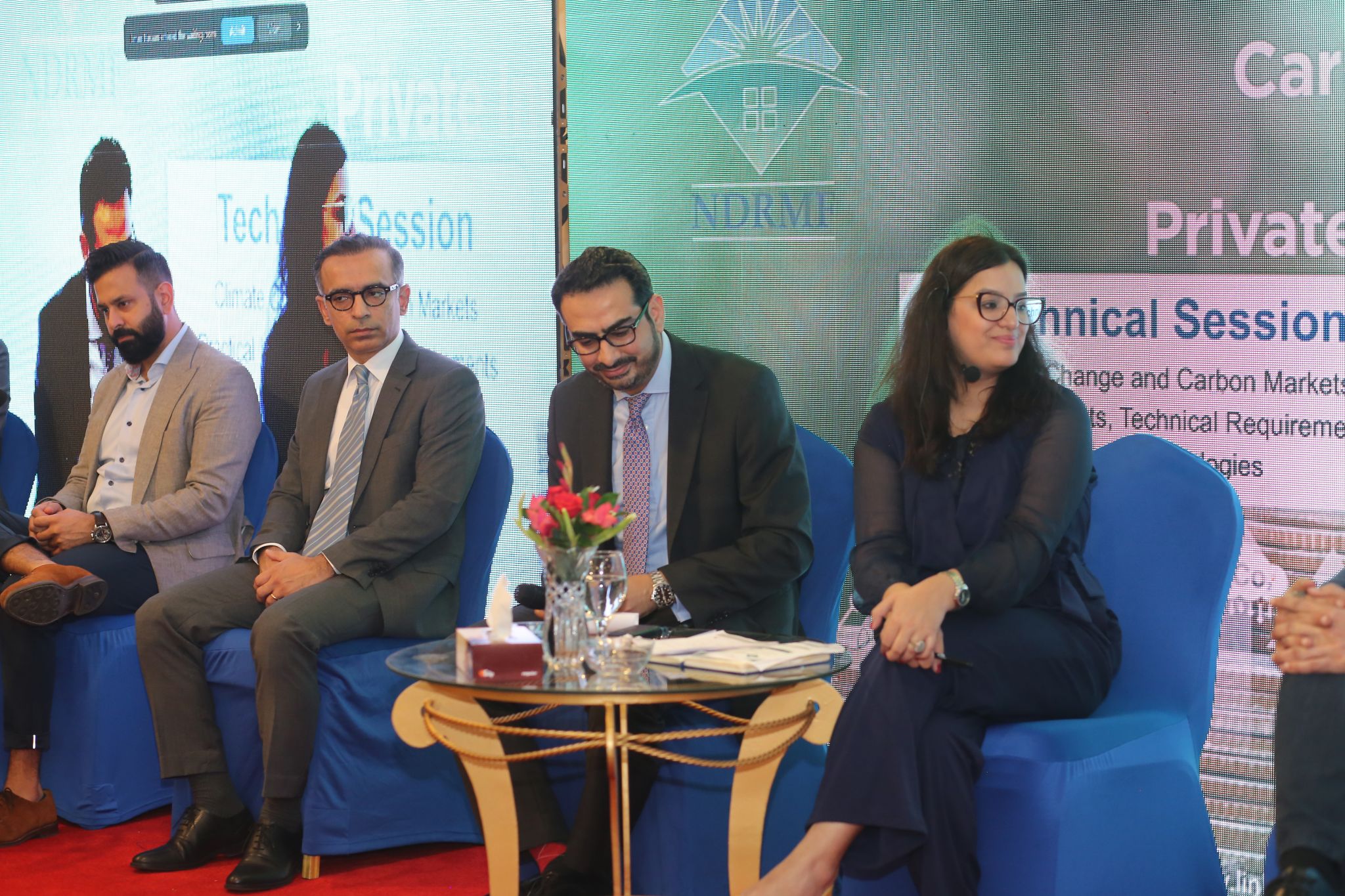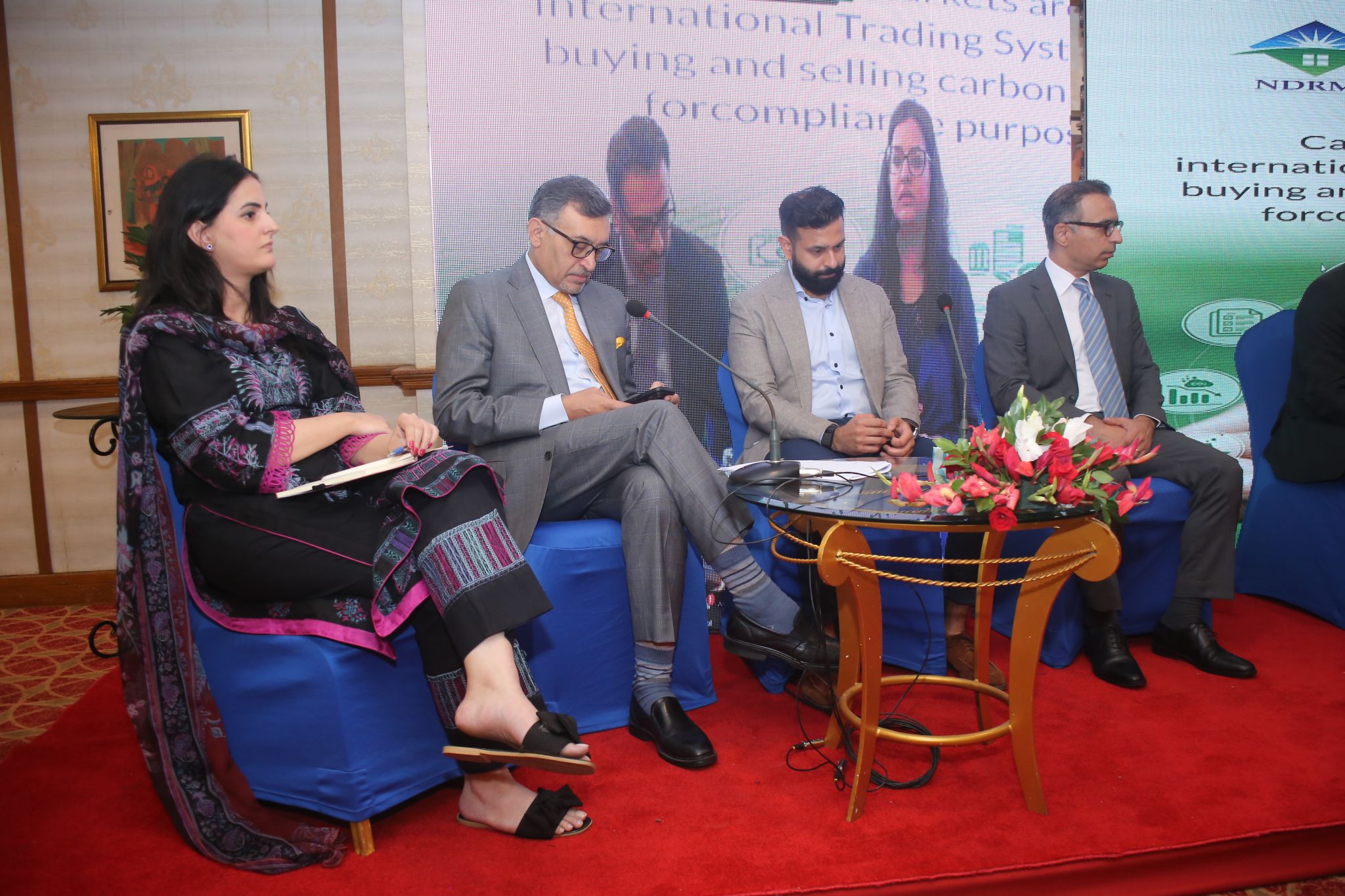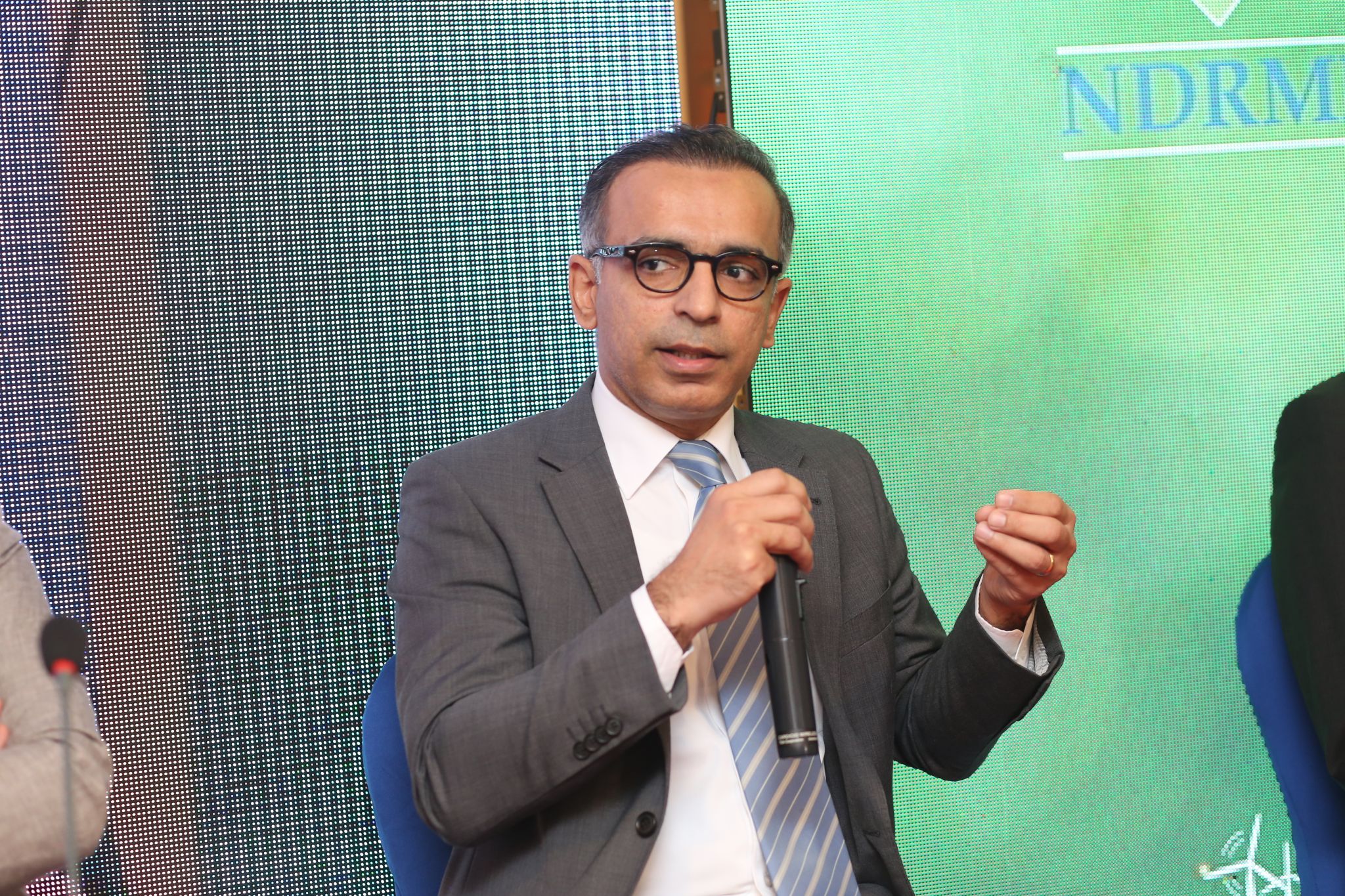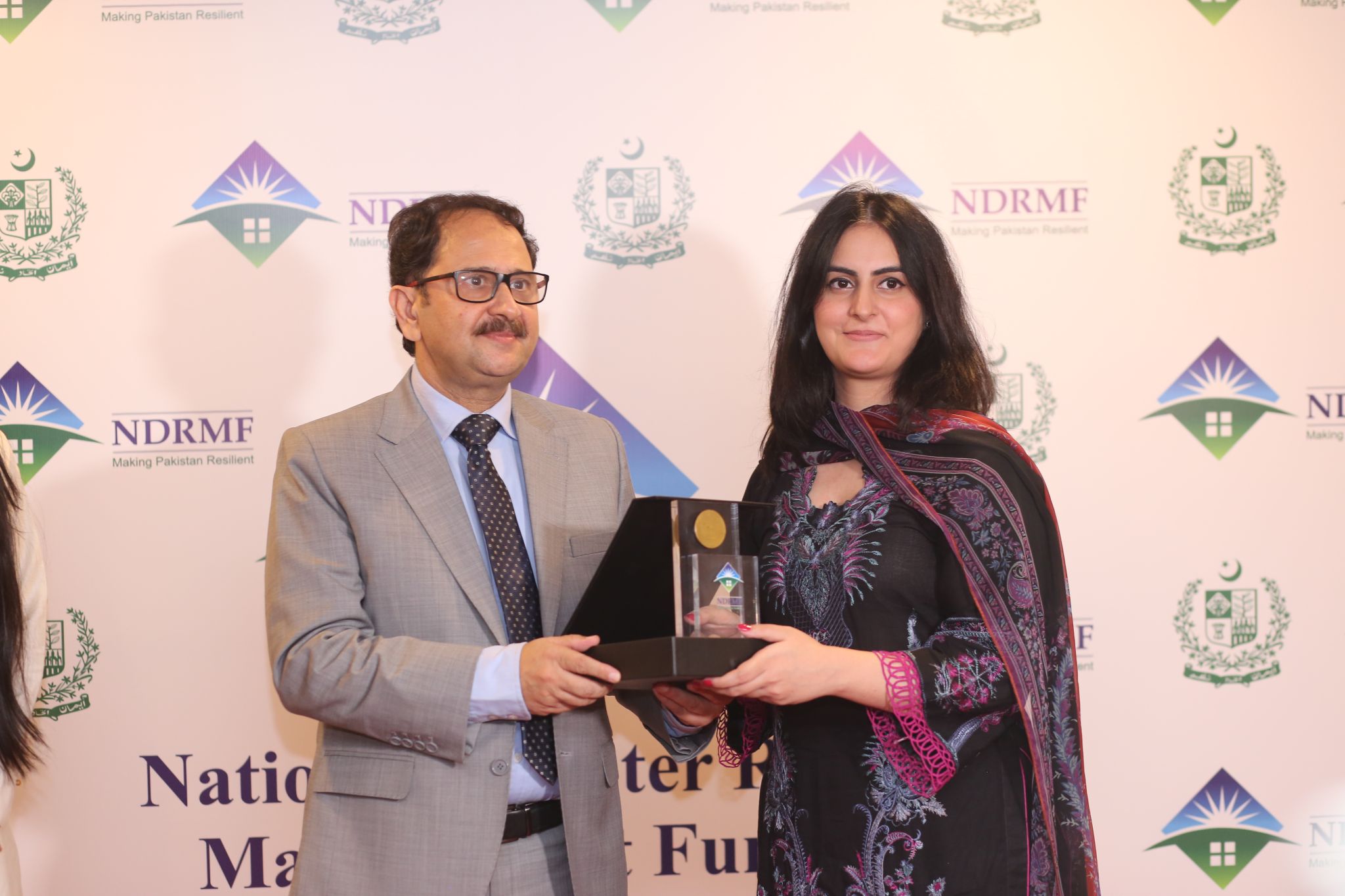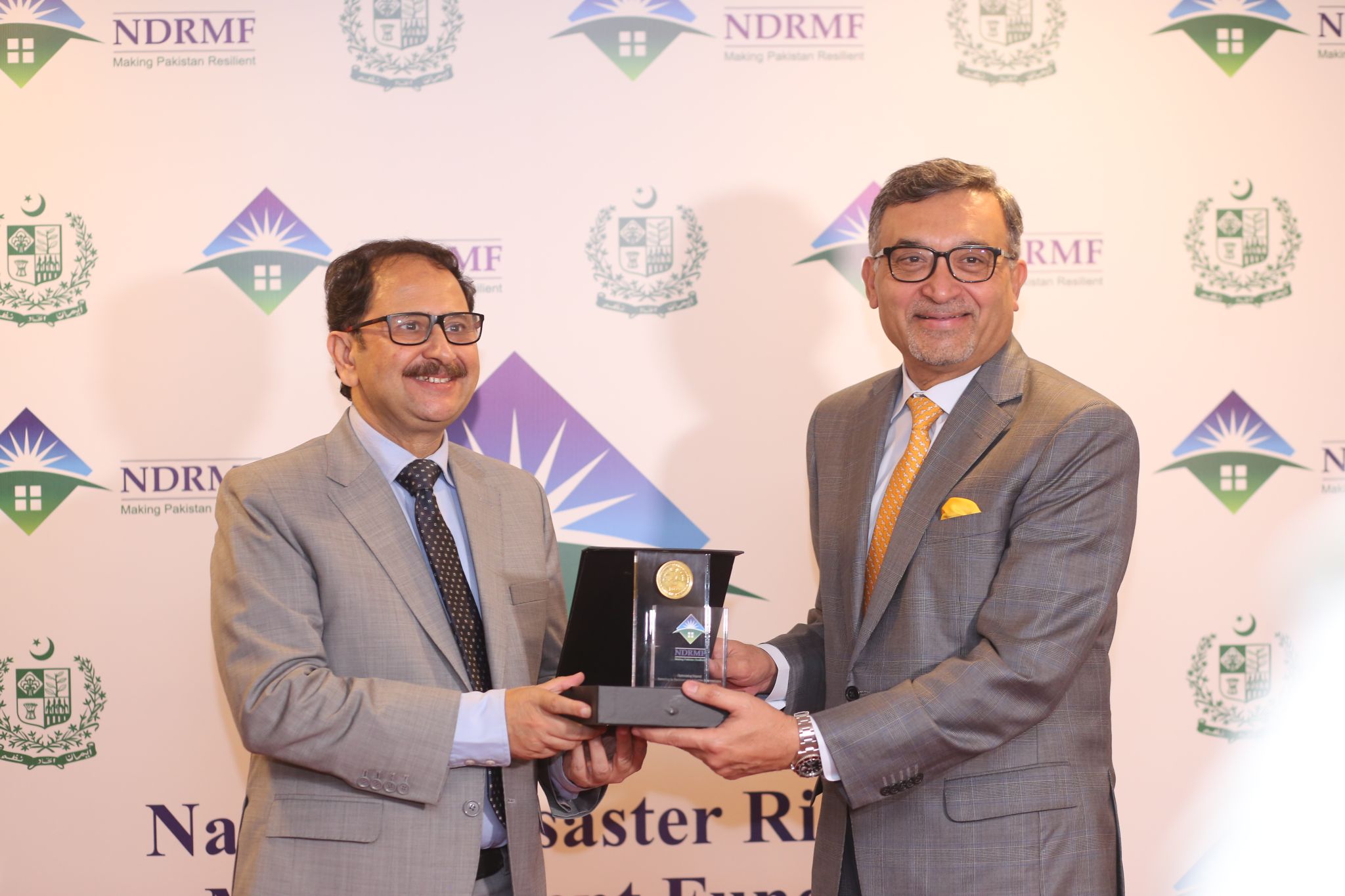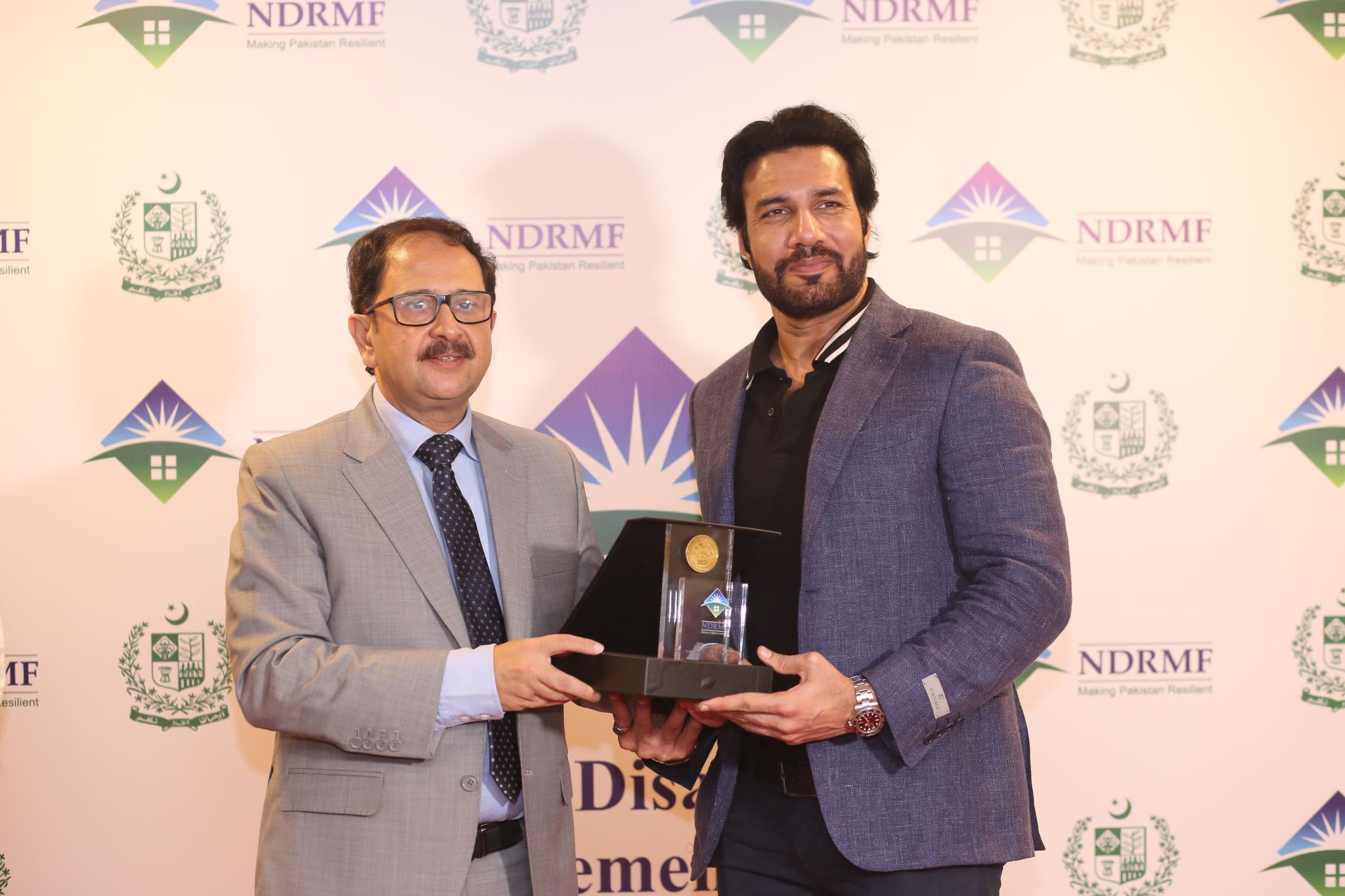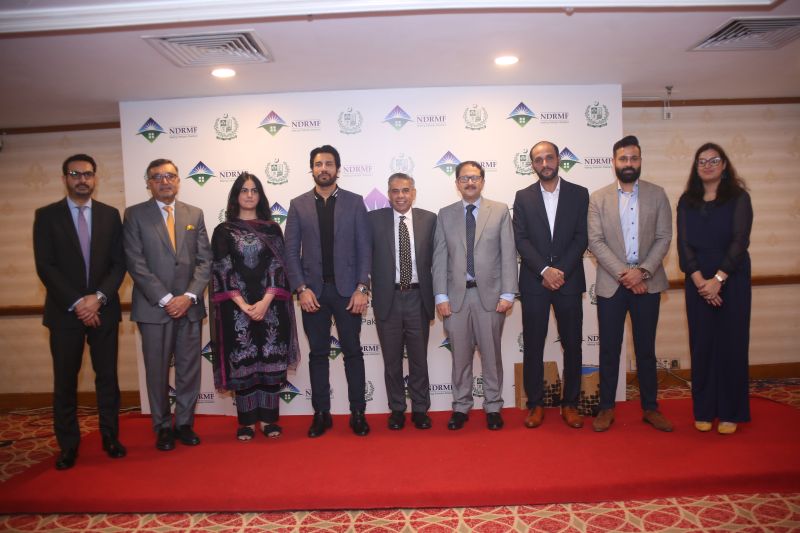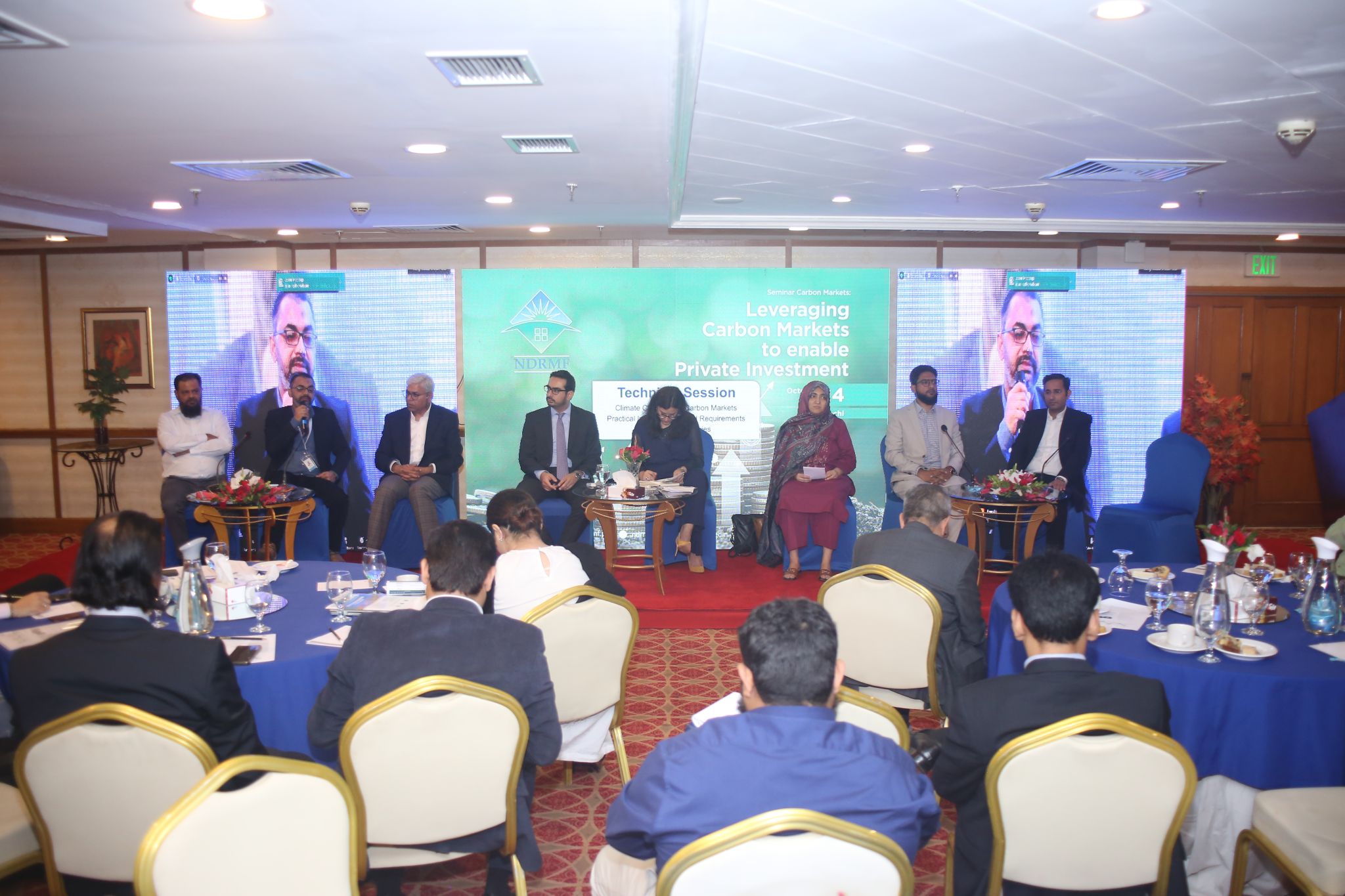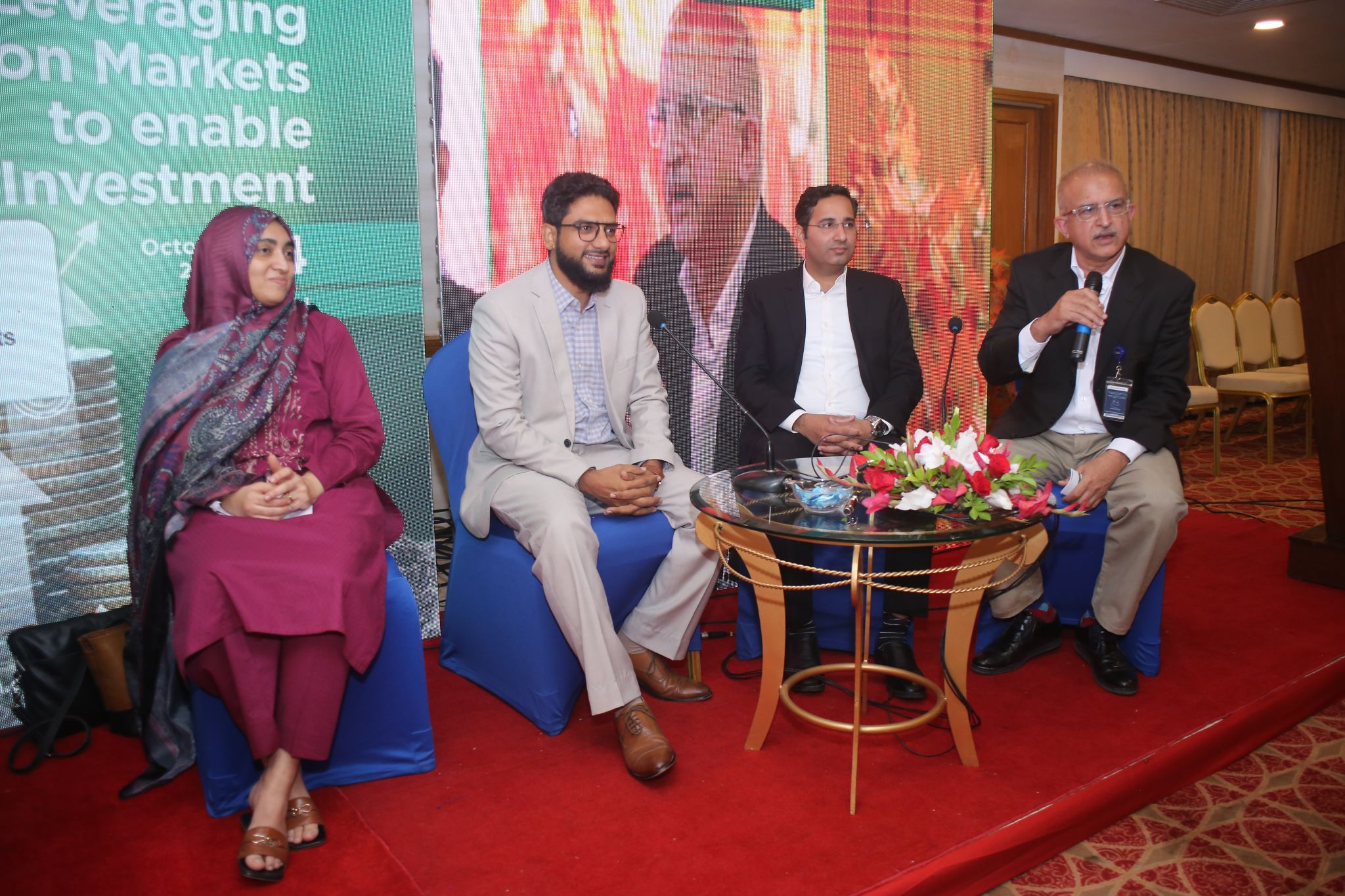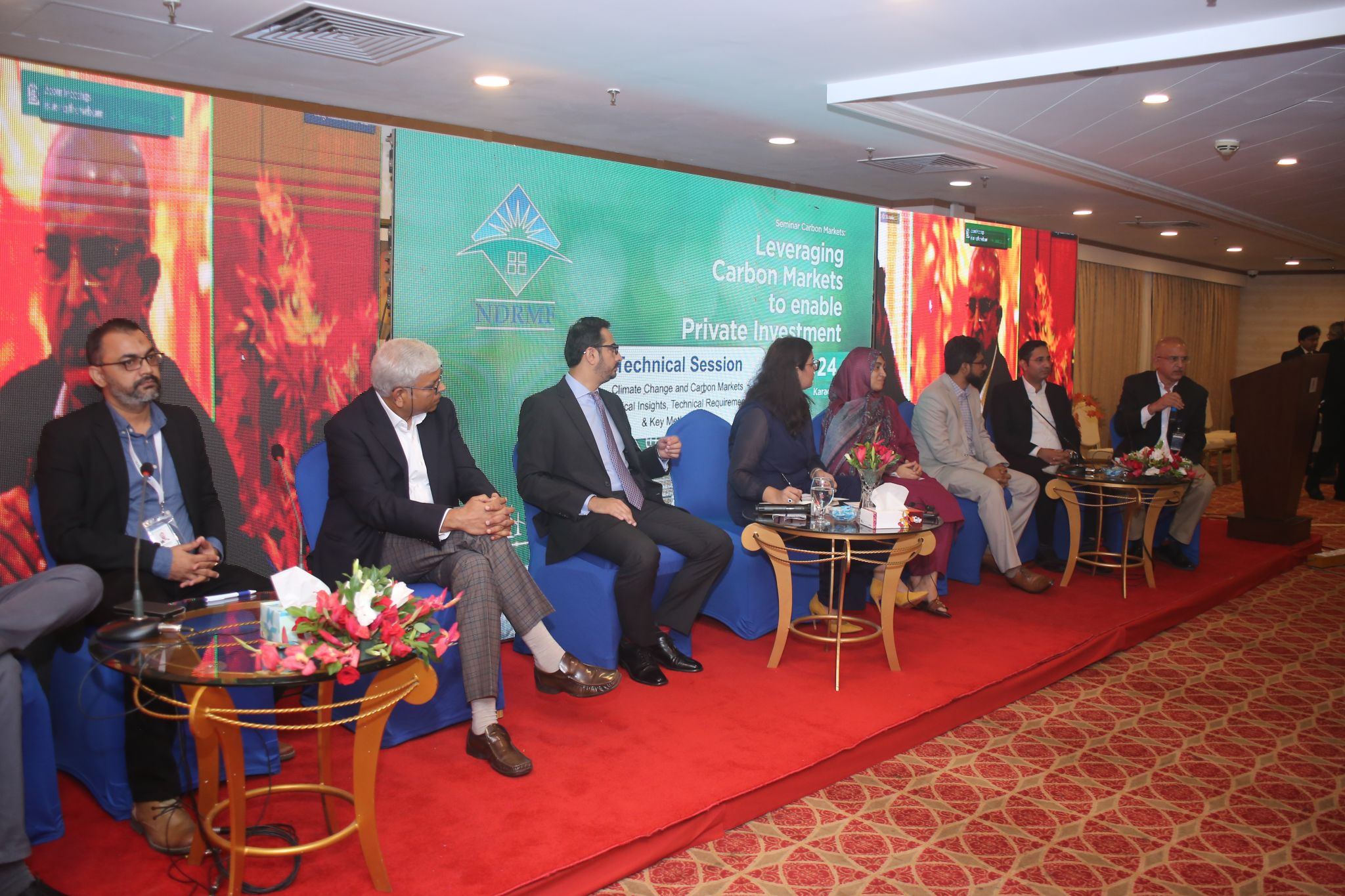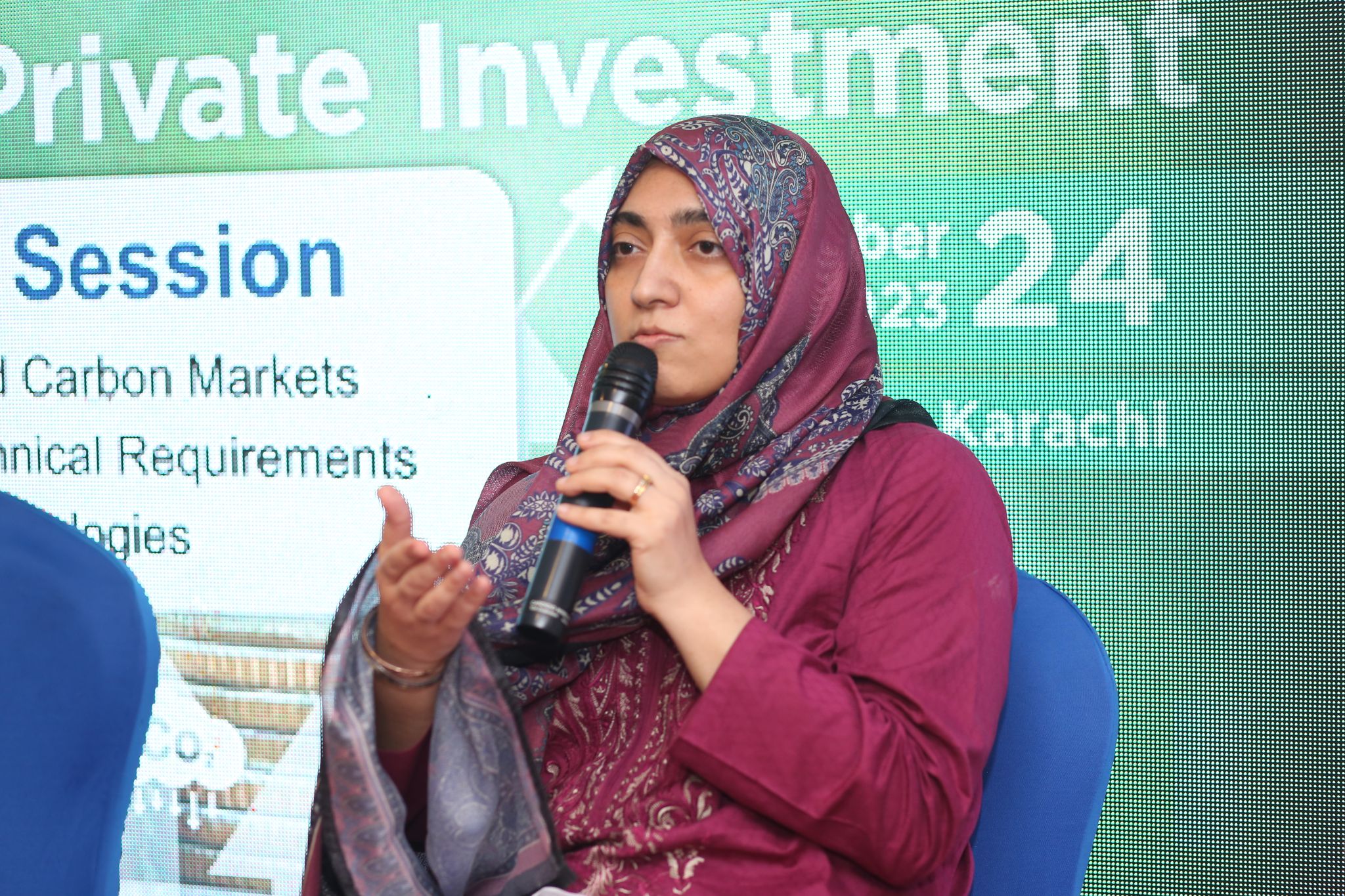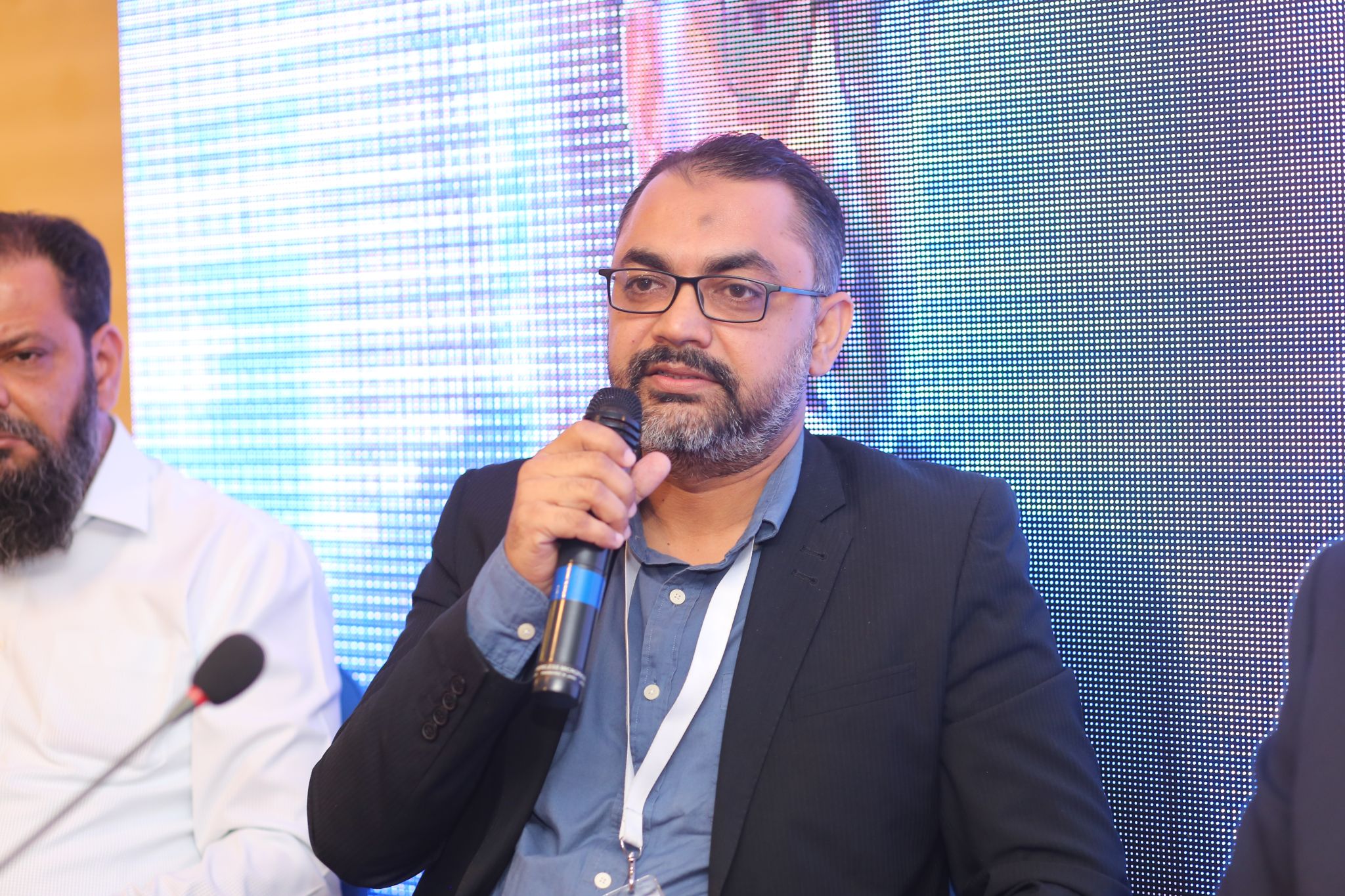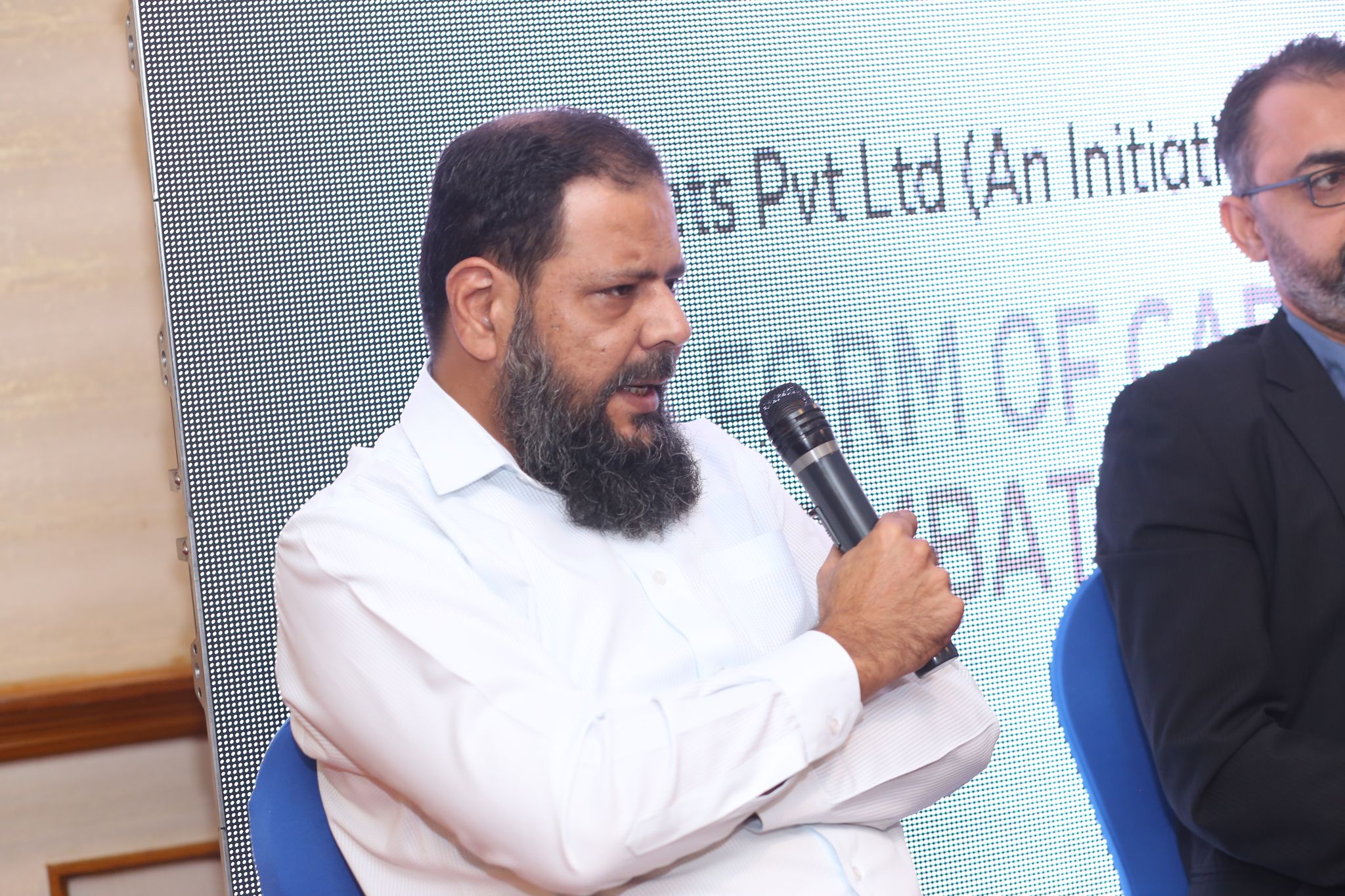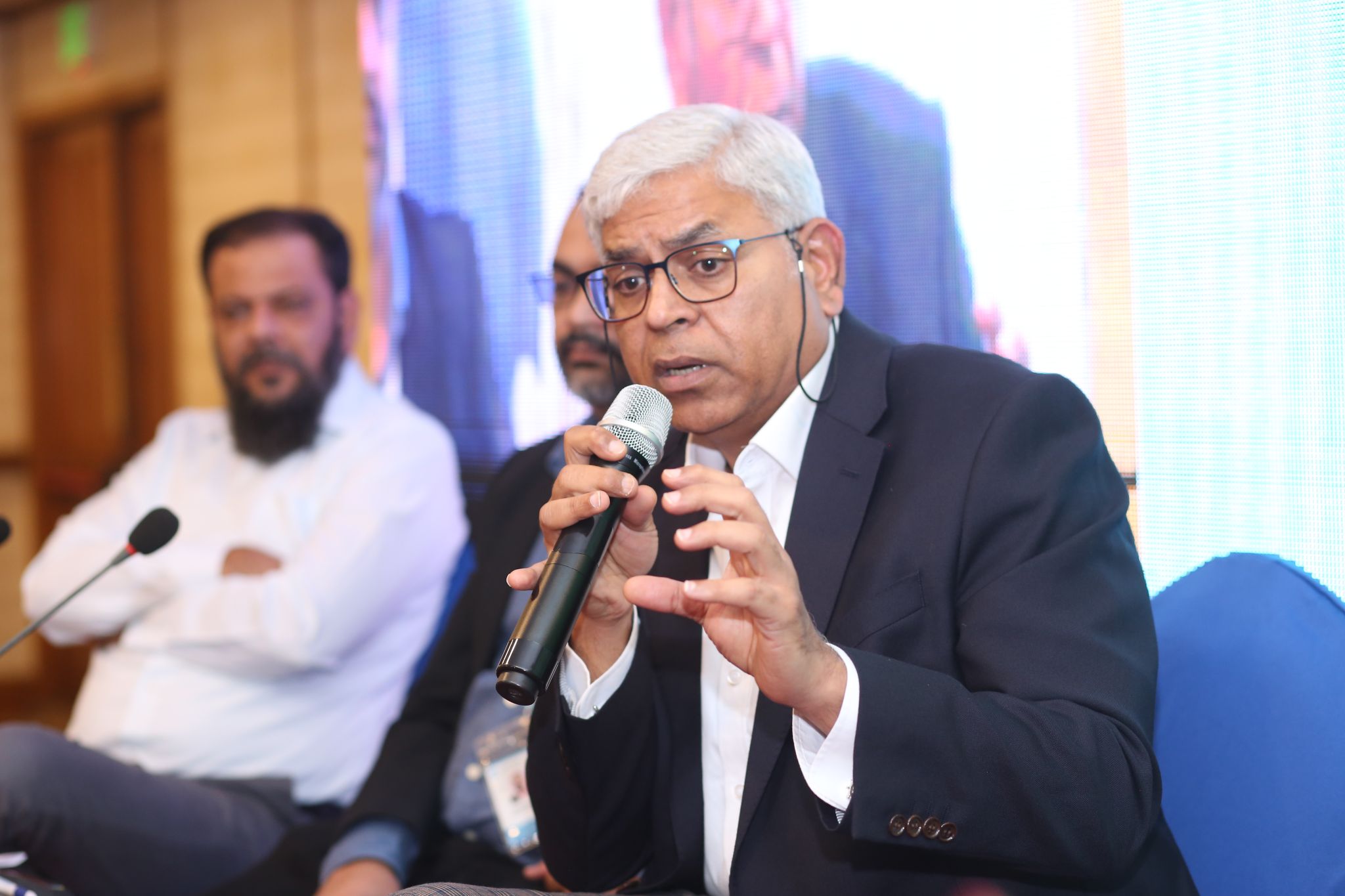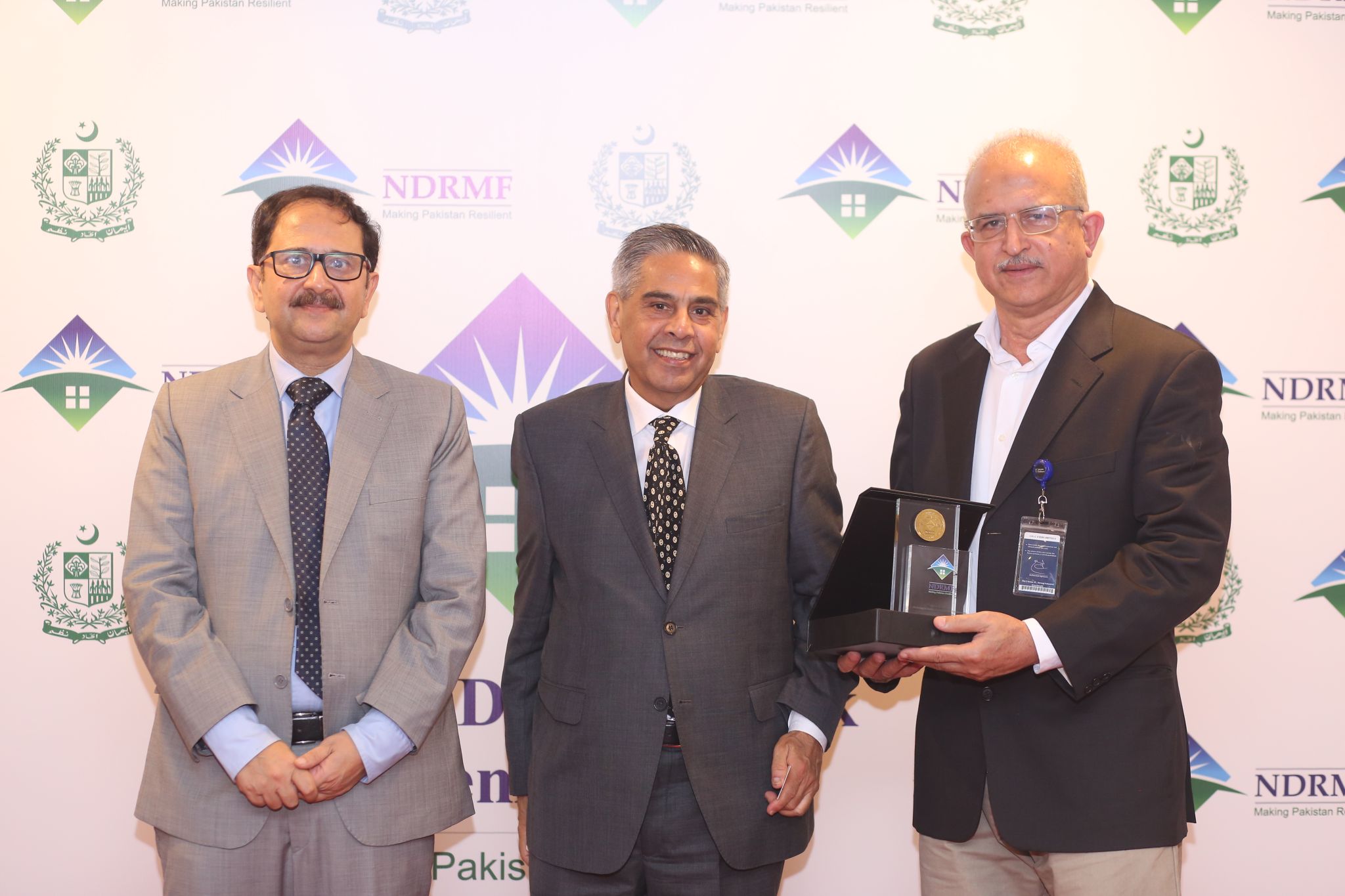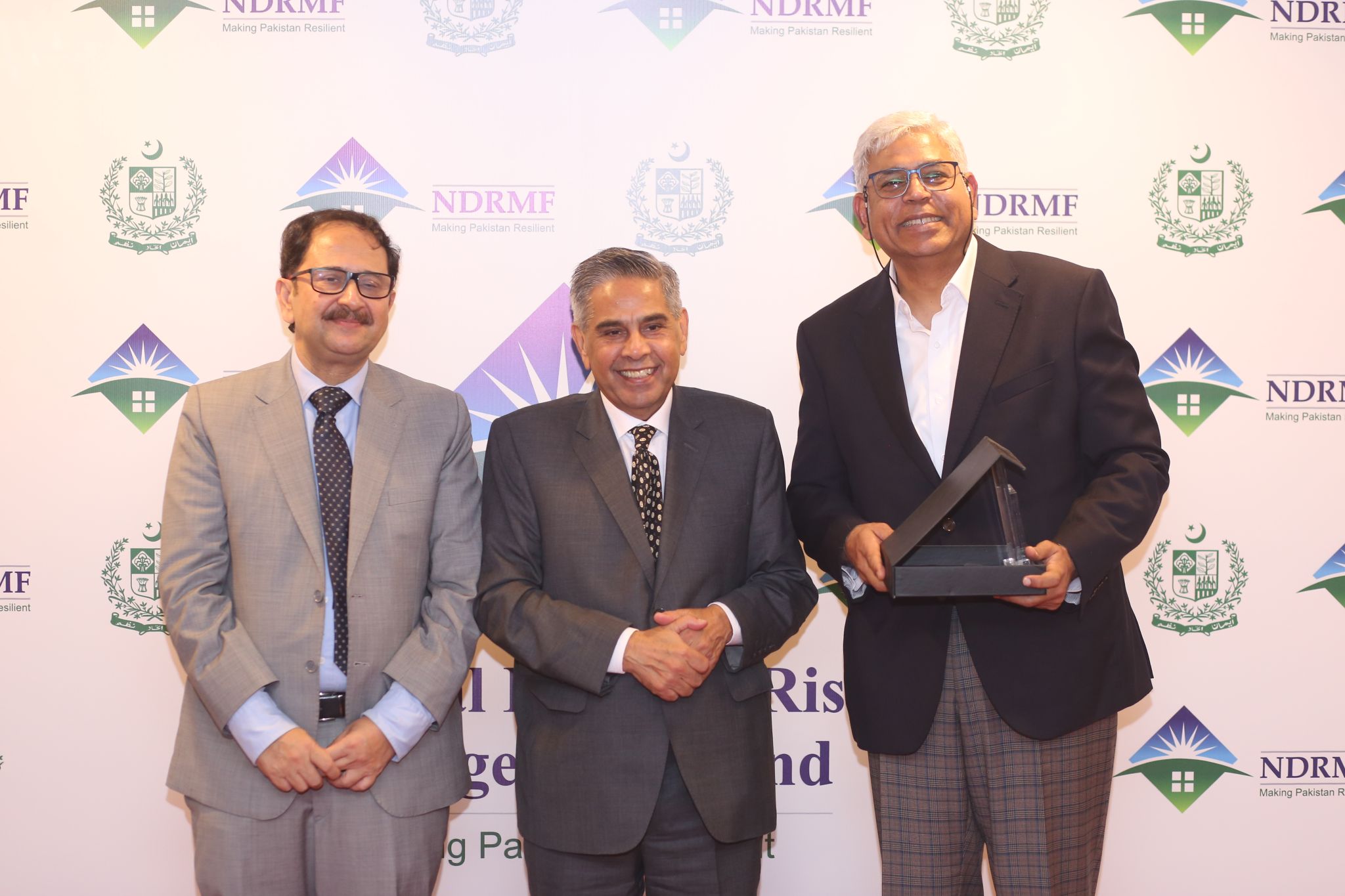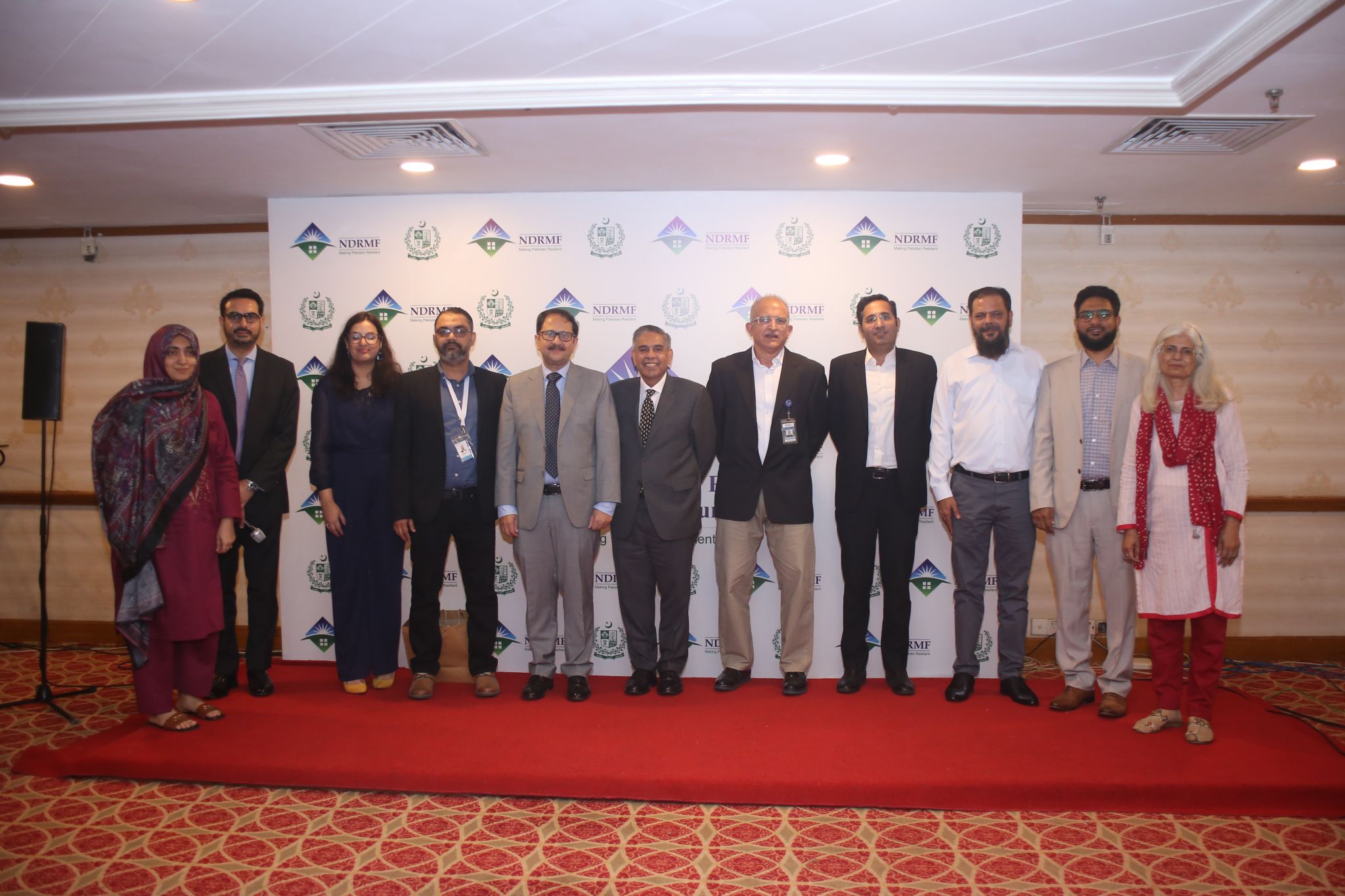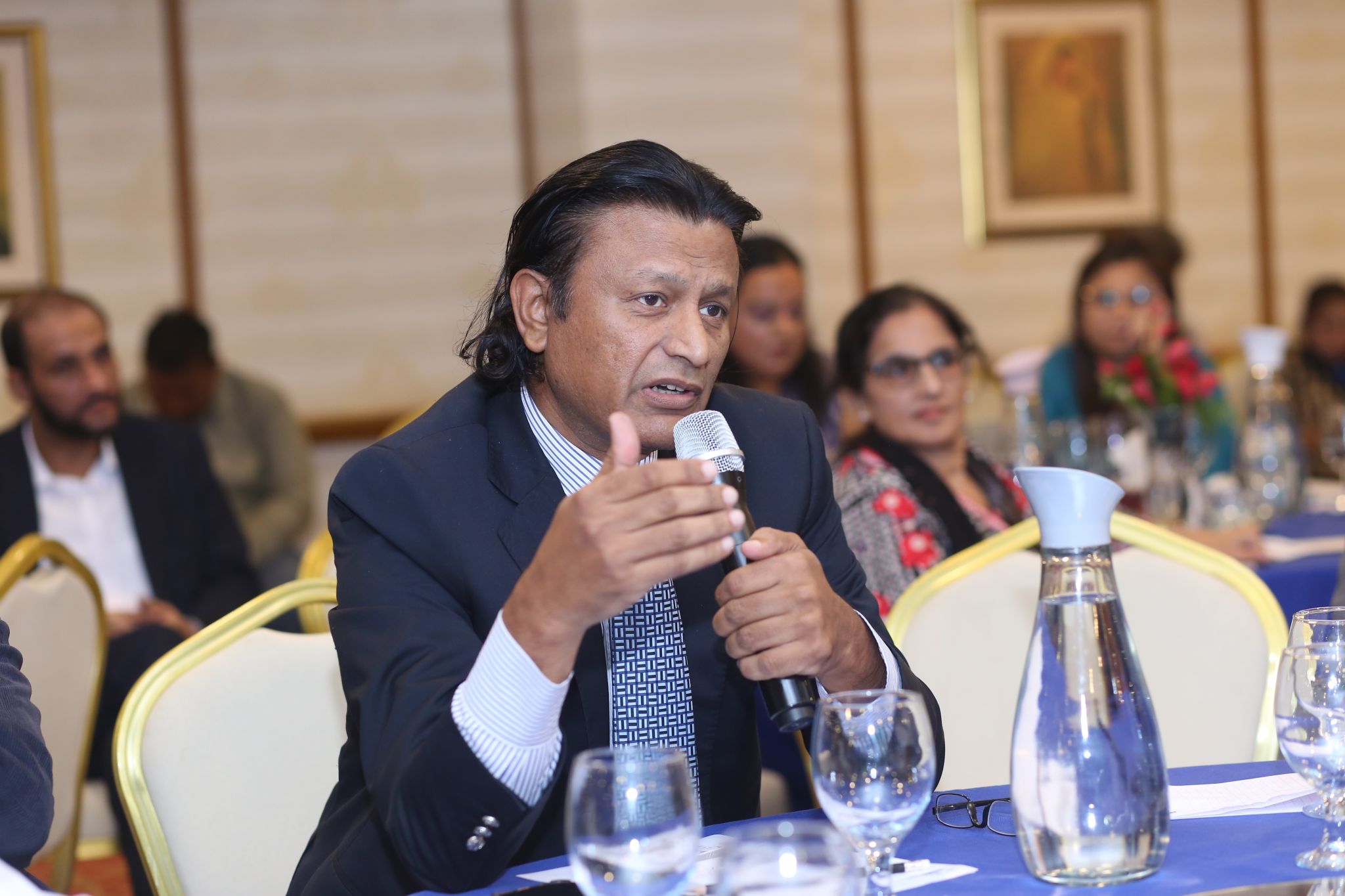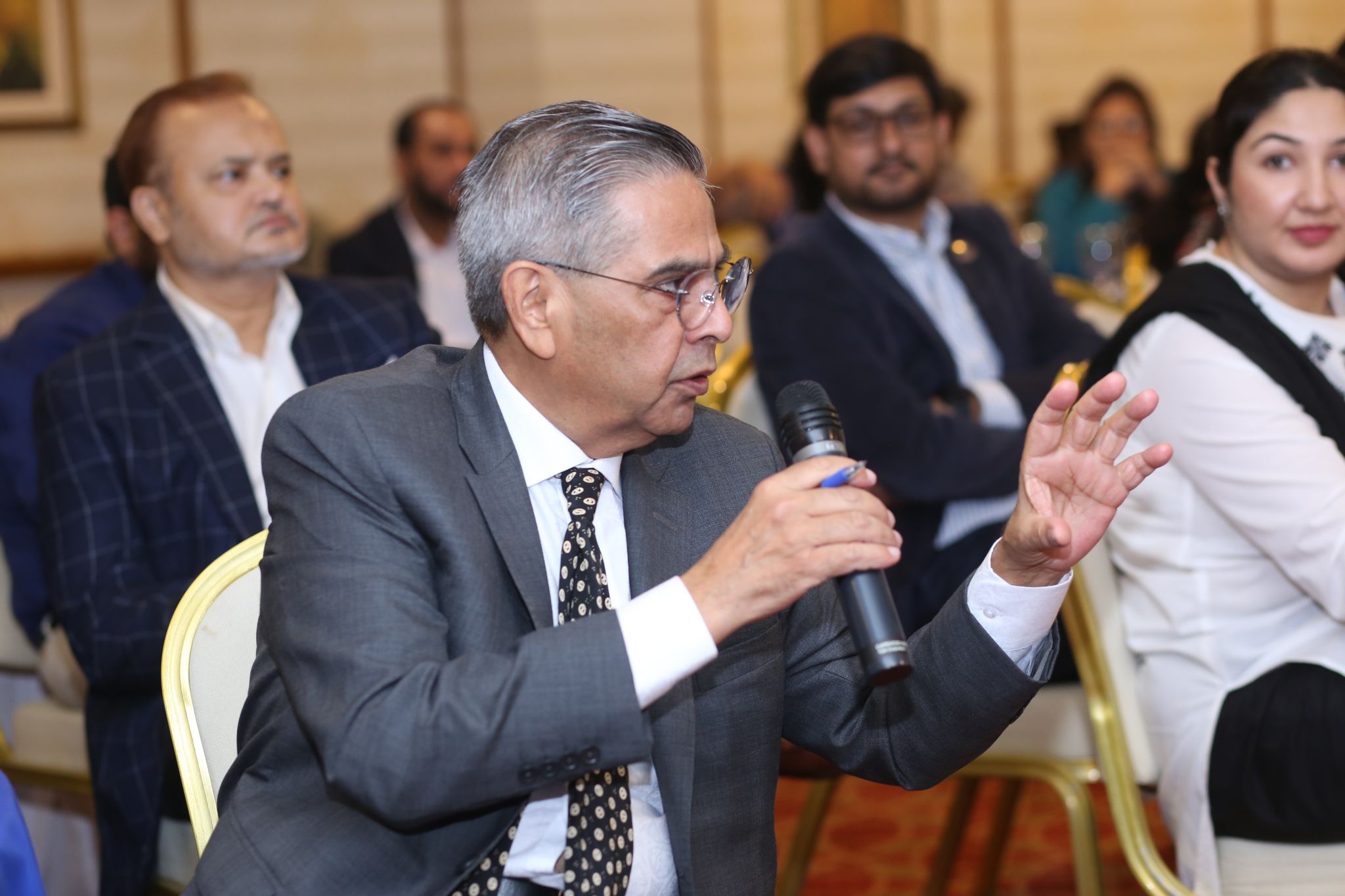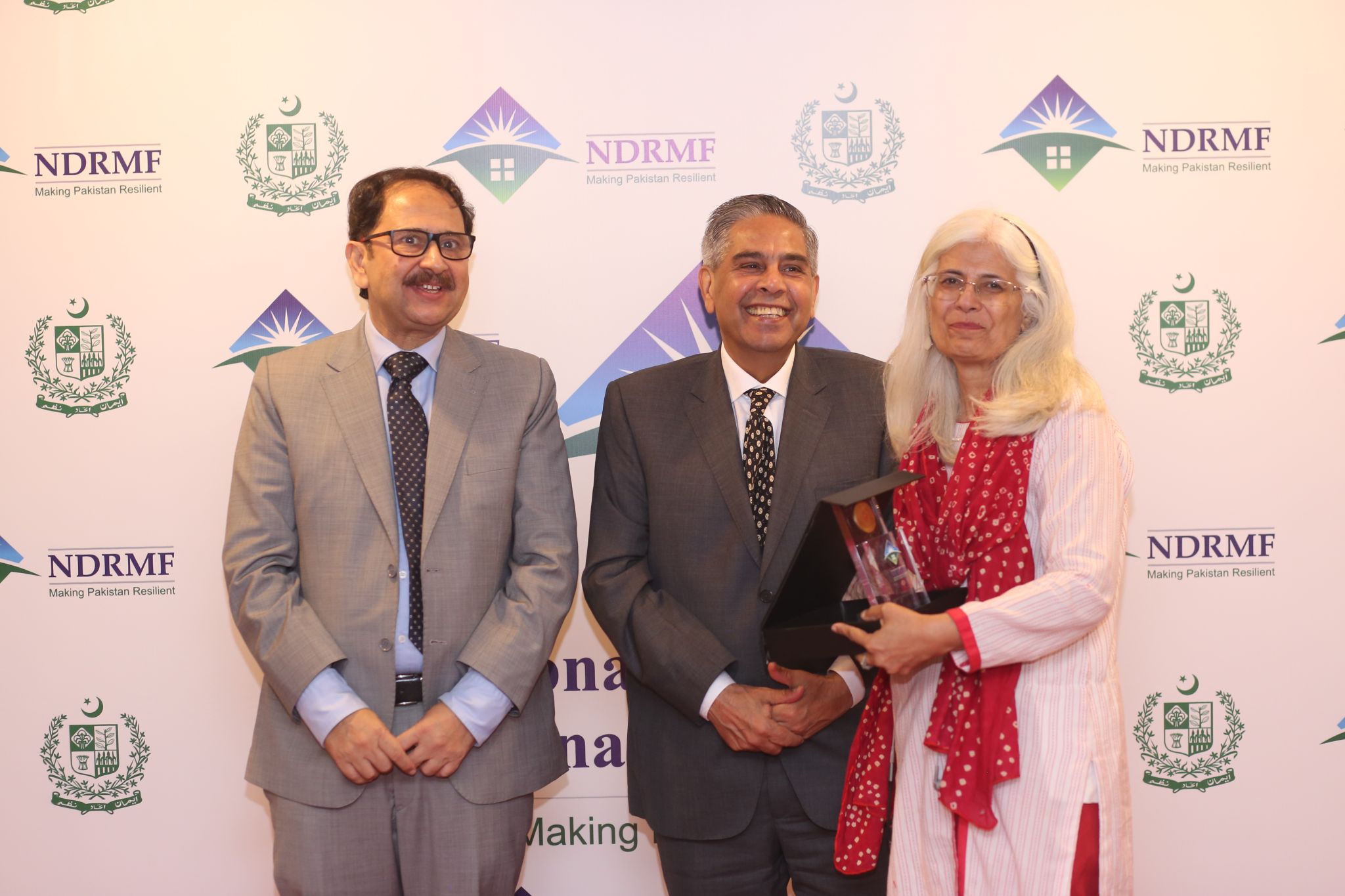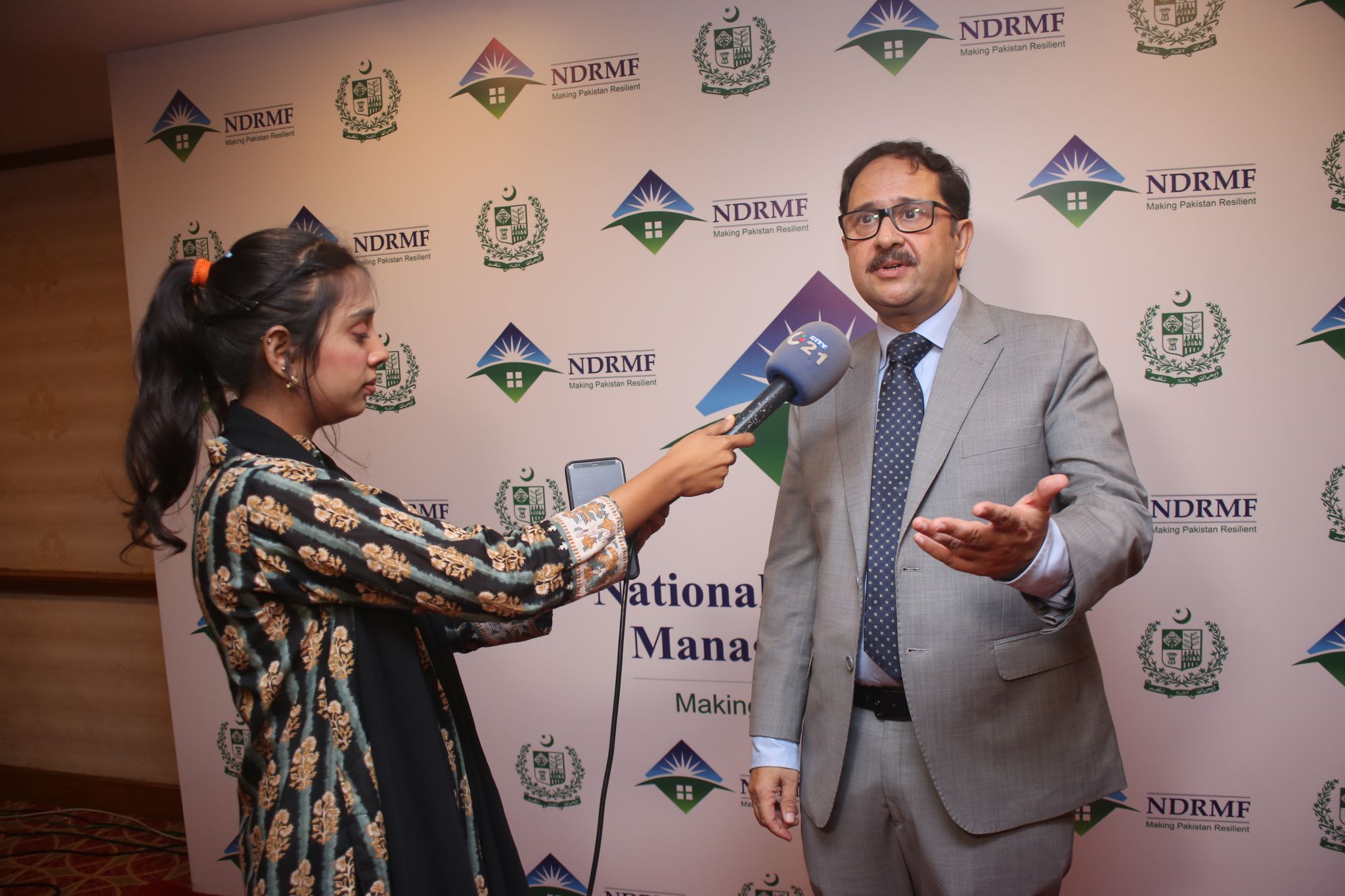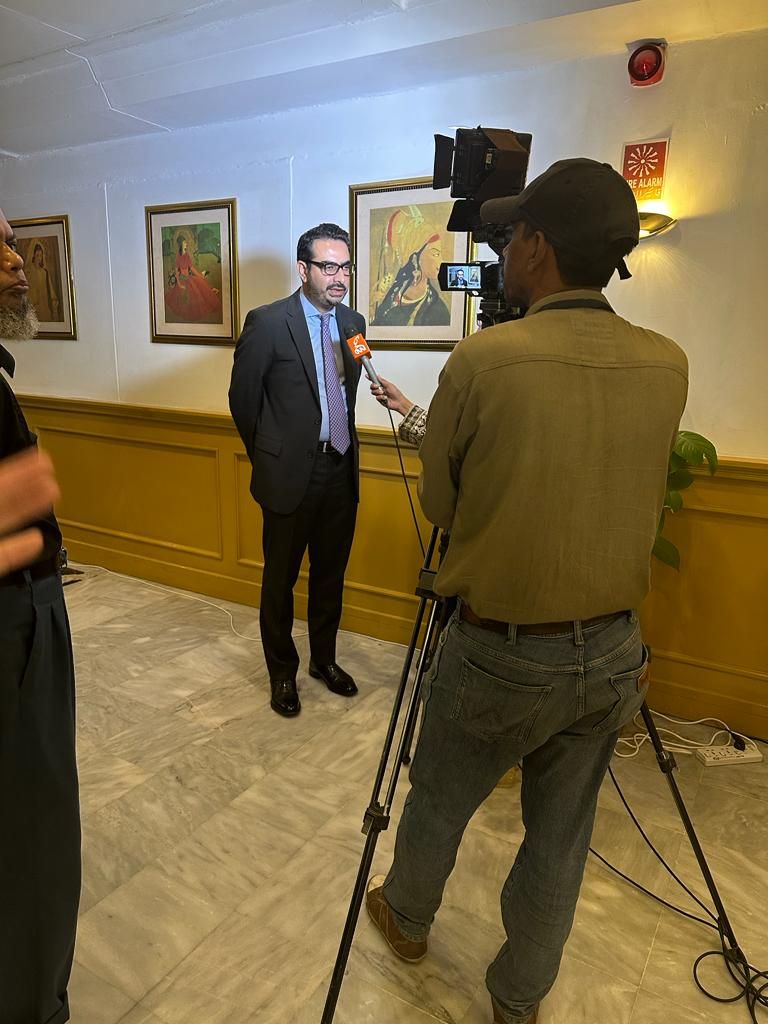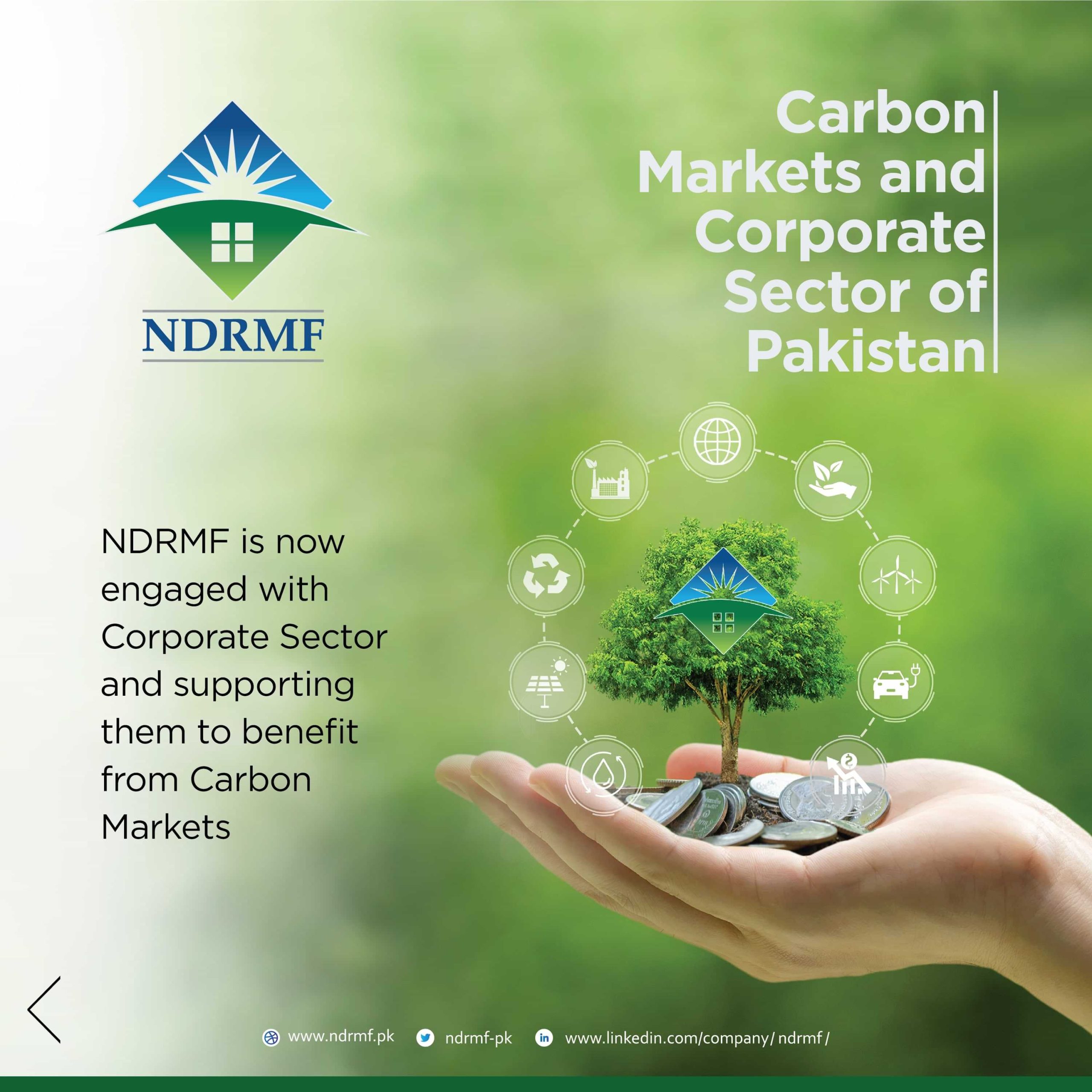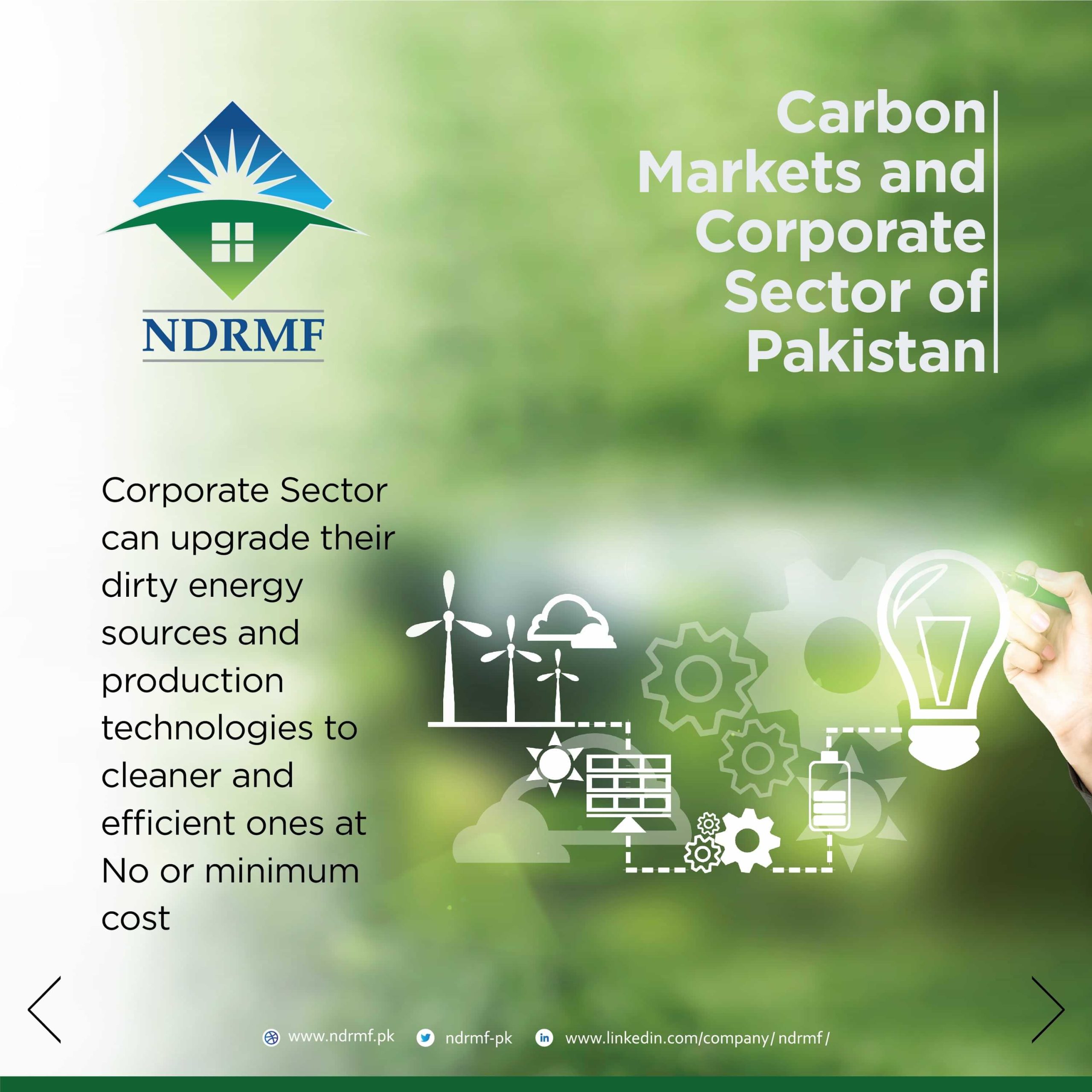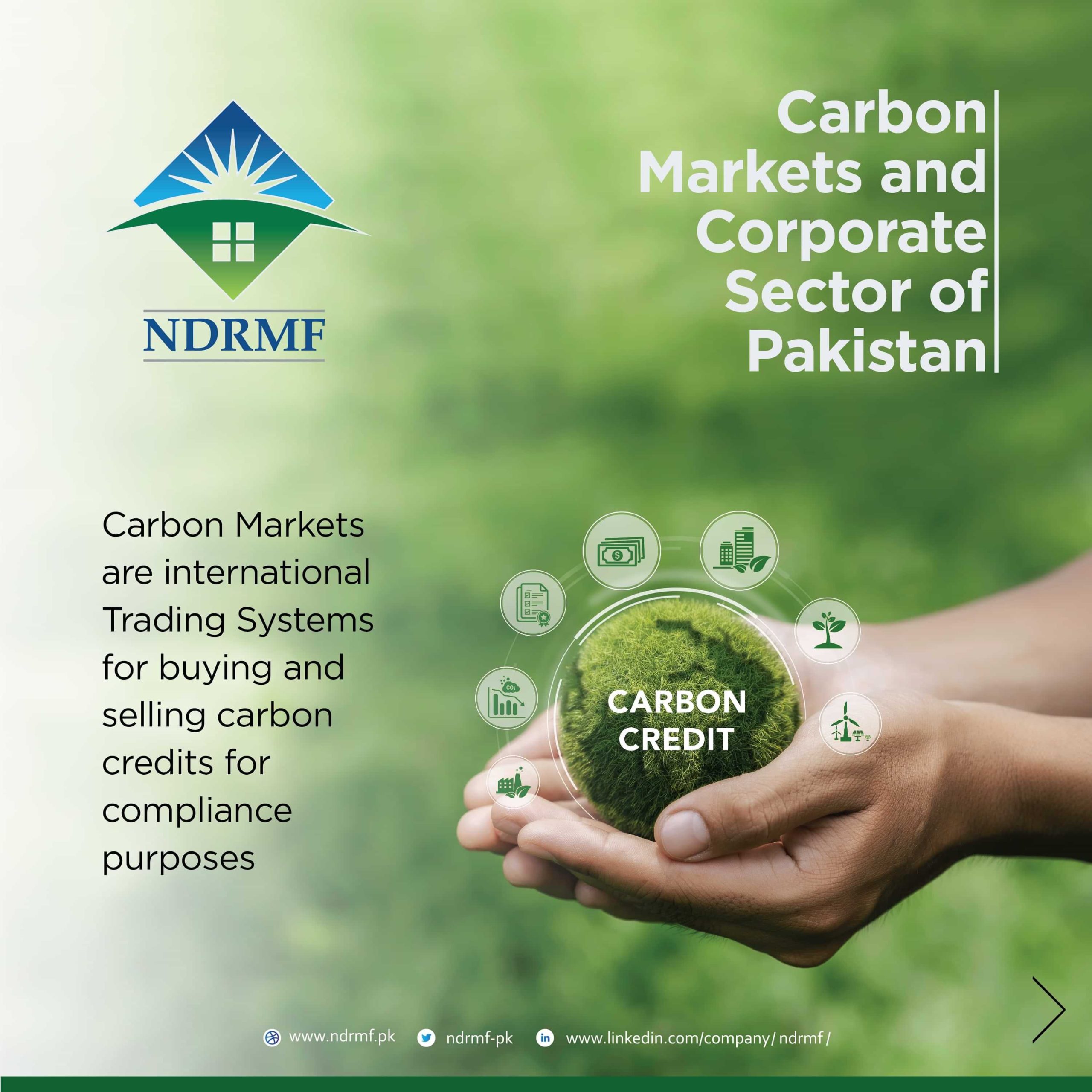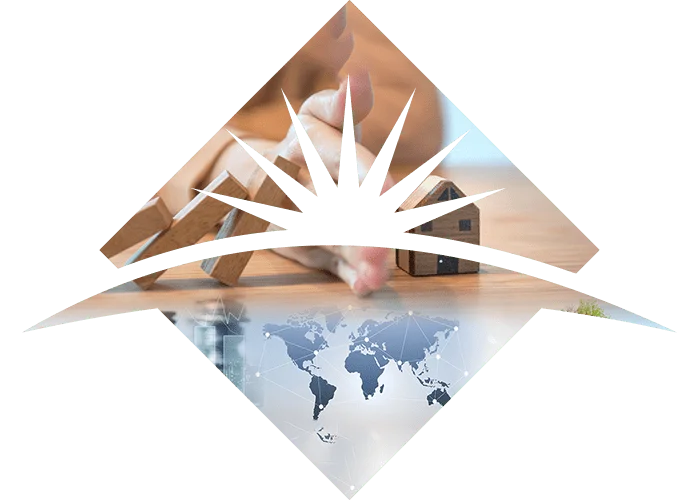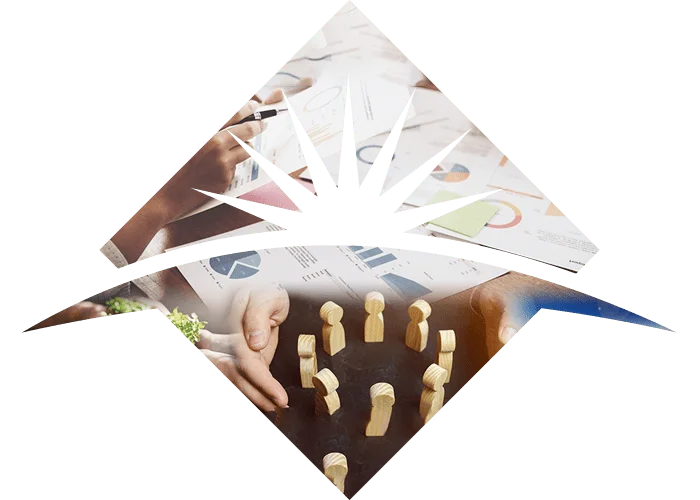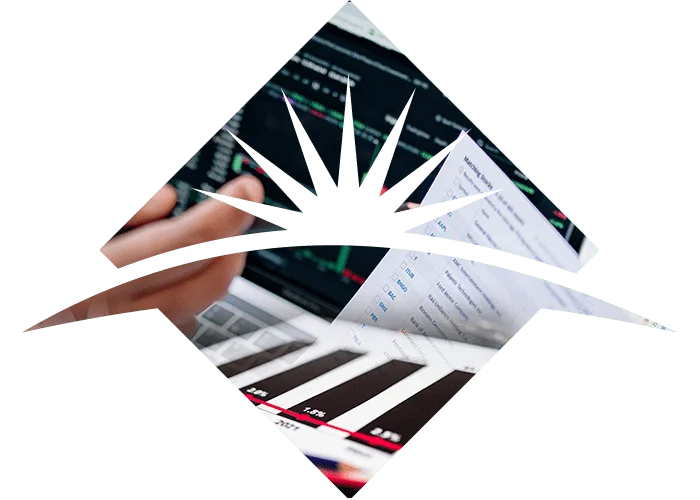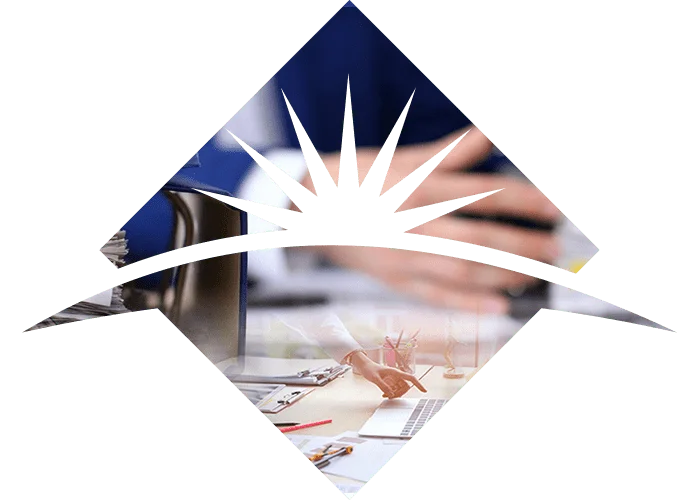- 11:00 pm
11:00 pm - 12:00 am
- SEMINAR CARBON MARKETS- Key Messages
- Carbon Markets are international trading systems for buying and selling carbon credits for compliance purposes
- Carbon Credits are financial instruments representing 1 ton of carbon dioxide reduced or avoided
- Pakistan have immense potential for carbon reduction and it’s conversion into carbon credits through carbon market principles
- Corporate Sector can upgrade their dirty energy sources and production technologies to cleaner and efficient ones at No or minimum cost
- NDRMF is now engaged with the Corporate Sector and supporting them to benefit from Carbon Market
| Sr # | Description | Speaker / Presenter | Duration (Mins) |
| Opening Session | |||
| 1. | Opening Remarks | Mr. Bilal Anwar
(CEO-NDRMF) |
05 |
| 2. | Chief Guest/Welcome Remarks | Mr. Asif Hyder Shah
Secretary MoCC &EC (TBC) |
10 |
| 3. | Keynote Speaker | Ali Tauqeer Sheikh
Climate Change Specialist/ Member-NDRMF Board |
10 |
| Tea / Coffee Break 15 | |||
| Technical Session: | |||
|
4. |
Introductory Presentation
(Setting the stage, Global & National Scenario) |
Mr. Bilal Anwar
(CEO-NDRMF) |
20 |
| Panel Discussion 1: Climate Change and Carbon Markets
(Practical Insights, Technical Requirements & Key Methodologies) |
|||
|
5. |
Panelist:
1. Mr. Nicolas Muller, UNFCCC Secretariat, Bonn 2. Mr. Umamaheswaran Krishnan, UNFCCC RCC MENA and SA 3. Ms. Lydia A. Omuko-Jung, Senior Legal Consultant, Climate Focus 4. Representative Asian Development Bank 5. Mr. Ahsan Tehsin, World Bank |
Moderator: Muhammad Fawad Hayat DGM-NDMRF |
45 |
| Panel Discussion 2: Carbon Markets Potential for Pakistan’s Private Sector & Role of Private Sector | |||
|
6. |
Panelist:
1. Mr. Syed Nawab, Group General Manager T&D-BE Artistic Milliners 2. Mr. Saad Ahmed, Country Lead - Business Development & New Ventures, Shell 3. Mr. Fawad Soomro, CEO Engro Foundation 4. Mr. Ehsan Saya, CEO Daraaz 5. Mr. Khalid Hamid, CEO National Insurance Company Limited 6. Dr. Ahmed Junaid, Rector and Dean, Karachi School of Business and Leader 7. Mr. Abu Bakar, Head of Energy & Sustainability, Amreli Steels Limited 8. Dr. Moin ud Din, Corporate Director HR/OD, Serena Hotels 9. Mr. Omair Dawood, International inspector/HiGG Global Coordinator, Control Union Pakistan |
Moderator: Muhammad Fawad Hayat DGM-NDMRF |
60 |
| Closing Session | |||
| 7. | Closing Remarks | MOPDSI | 10 |
|
8. |
Wrap-up, Next steps |
Mr. Bilal Anwar
(CEO-NDRMF) |
05 |
| Lunch | |||
| SEMINAR | Carbon Markets |
| EVENT TITLE | Leveraging Carbon Markets to enable Private Investment |
| VENUE | Marriott Hotel, Karachi |
| DATE | 24 October 2023 |
| TIME | 10:00 A.M – 13:00 P.M (PST) |
|
RATIONALE |
National Disaster Risk Management Fund (NDRMF) is a Federal Government non-banking financial intermediary exclusively focused to invest in Disaster Risk Reduction, Disaster Risk Financing and Climate Change across Pakistan specially in most vulnerable regions of Pakistan. The Fund is set up under section 42 of the Companies Act 2017, that has emerged as a Pakistan’s national investment fund for resilience building against natural disasters and long-term climate change adverse impacts with a track record of successfully completed projects in a broad range of DRR, DRF and Climate Change thematic areas.
As part of its efforts to provide technical support and assistance in a wide range of emerging areas and challenges, NDRMF is pioneering to raise awareness and undertake advocacy efforts in climate change policy implementation. In this regard, as an important component of awareness and outreach initiative, NDRMF has planned to organize a Seminar on “Leveraging Carbon Markets to enable Private Investment” from NDRMF’s platform to engage effectively with the Private Sector and other relevant stakeholders to further strengthen link between NDRMF and Private Sector institutions in order to exchange relevant experiences that allows improving government’s commitment to Climate resilience.
Carbon Markets are globally recognized mechanism for carbon financing and meeting mitigation action in a cost efficient manner. Pakistan can benefit from tapping into Carbon Markets, such as voluntary emissions trading schemes, which would enable Pakistan to unlock private finance via carbon credits. Unlike developed countries which have already used up much of their carbon budget due to excessive industrialization, Pakistan is blessed with an abundance of natural resources and has room to reduce more regarding forest protection and renewable energy etc. The potential for private sector participation in carbon markets is huge: this creates benefits but also risks if governments do not respond with appropriate policies. However, it is recognized that level of understanding and general awareness on technical, policy and regulatory aspects of carbon markets is considerably low which have prevented Pakistan’s Private Sector to take full benefit from the evolving carbon markets.
In this context, broadly the planned “Seminar” is intended to highlight and discuss following issues:
|
|
PREFACE |
Carbon markets are effective carbon off-setting mechanisms proven to trigger mitigation actions in a cost efficient manner. Under the Carbon Market systems carbon credits are generated in compliance with regulatory requirements and traded through one of the carbon regimes. Companies and/or individuals can use carbon markets to compensate for their greenhouse gas emissions by purchasing carbon credits from entities that remove or reduce greenhouse gas emissions.
There are broadly two types of carbon markets: Compliance and Voluntary. Compliance markets are created as a result of any national, regional and / or international policy or regulatory requirement. Voluntary carbon markets national and international refer to the issuance, buying and selling of carbon credits, on a voluntary basis. The current supply of voluntary carbon credits comes mostly from private entities that develop carbon projects, or governments that develop programs certified by carbon standards that generate emission reductions and/or removals. Demand comes from private individuals that want to compensate for their carbon footprints, corporations with corporate sustainability targets, and other actors aiming to trade credits at a higher price to make a profit.
Significant progress has been made towards agreeing on the processes and methodologies that countries need to follow to access the carbon markets and there are many opportunities not least the benefits that will accrue by diverting a share of the proceeds to support the most vulnerable countries to adapt to climate change. However, there are also serious concerns including issues related to double-counting of GHG emission reductions, human rights abuses, and greenwashing (in which companies falsely market their green credentials, for example, misrepresentations of climate-neutral products or services). Which is why the Paris Agreement negotiations on this topic have been so complex and protracted.
For carbon markets to be successful, these issues must be addressed. Emission reductions and removals must be real and aligned with the country’s Nationally Determined Contributions. There must be transparency in the institutional and financial infrastructure for carbon market transactions and there must be adequate social and environmental safeguards to mitigate against any adverse project impacts and to promote positive ones.
Pakistan can also earn carbon credits through plantation, reforestation, various green covers, solar and wind power, controlling methane emissions from livestock and paddy fields and such other activities that control GHG emissions. Pakistan has successfully completed a carbon credit earning project and the Government of Sindh has already earned carbon credits for the mangrove forests and they got the first tranche of $14.75 million in 2022, which may rise to $24-25 million in the next five years and this increase will continue for the 60-year pledge period. Therefore, Pakistan is already enjoying the benefits of carbon credits from a forestry project and thus there is a great deal of scope and opportunities for earning carbon credits on a larger scale. This success story of earning carbon credits can now easily be replicated to other forestry and GHG-controlling projects but the lack of capacity, institutional arrangements and commitments are obstructing the process.
Similarly, the potential for private sector participation in carbon markets is huge. Depending on different price scenarios and their underlying drivers, the size of the voluntary carbon market (VCM) is expected to grow to about $100 billion in 2030 and around $250 billion by 2050. Globally, about 1/5th of the world’s 2,000 largest companies has committed to achieving the “Net Zero” target by the year 2050. However, Governments in developing countries face a challenging task to accelerate decarbonization in partnership with the Private sector.
While investor participation in carbon markets is currently limited, the market landscape is evolving and carbon markets are increasingly being seen as an investable asset class. Investors can explore opportunities in compliance markets, voluntary markets, and private assets. Investors can also consider investments in private assets with carbon removal capacity. Such assets include companies operating in timber, agriculture, negative emission technologies, environmental remediation, wetland management, amongst others. An increasing number of investment products focuses on nature-based solutions or technology start-ups, seeking to profit from the growth of these new business models and a share the carbon credits they generate. Such strategies however are still only a small market segment. Carbon markets are experiencing growth, but investment opportunities are still limited and risks remain significant. However, it is essential for investors to actively engage with carbon markets, as they are a fundamental pillar of the future net-zero economy.
|
|
OBJECTIVE OF THE SEMINAR |
The Seminar is intended to build understanding of Private Sector regarding Carbon Markets and explore the Private sector potential, role of private sector and devise a road map to avail this opportunity in a timely manner.
The main objective is to discuss and inform participants about:
|
|
INTENDED OUTCOME |
Increased awareness and understanding of carbon markets among participants. Identification of opportunities for Private Sector in the context of carbon markets. A roadmap for future actions and initiatives related to carbon market development in Pakistan.
|
|
AUDIENCE |
|
